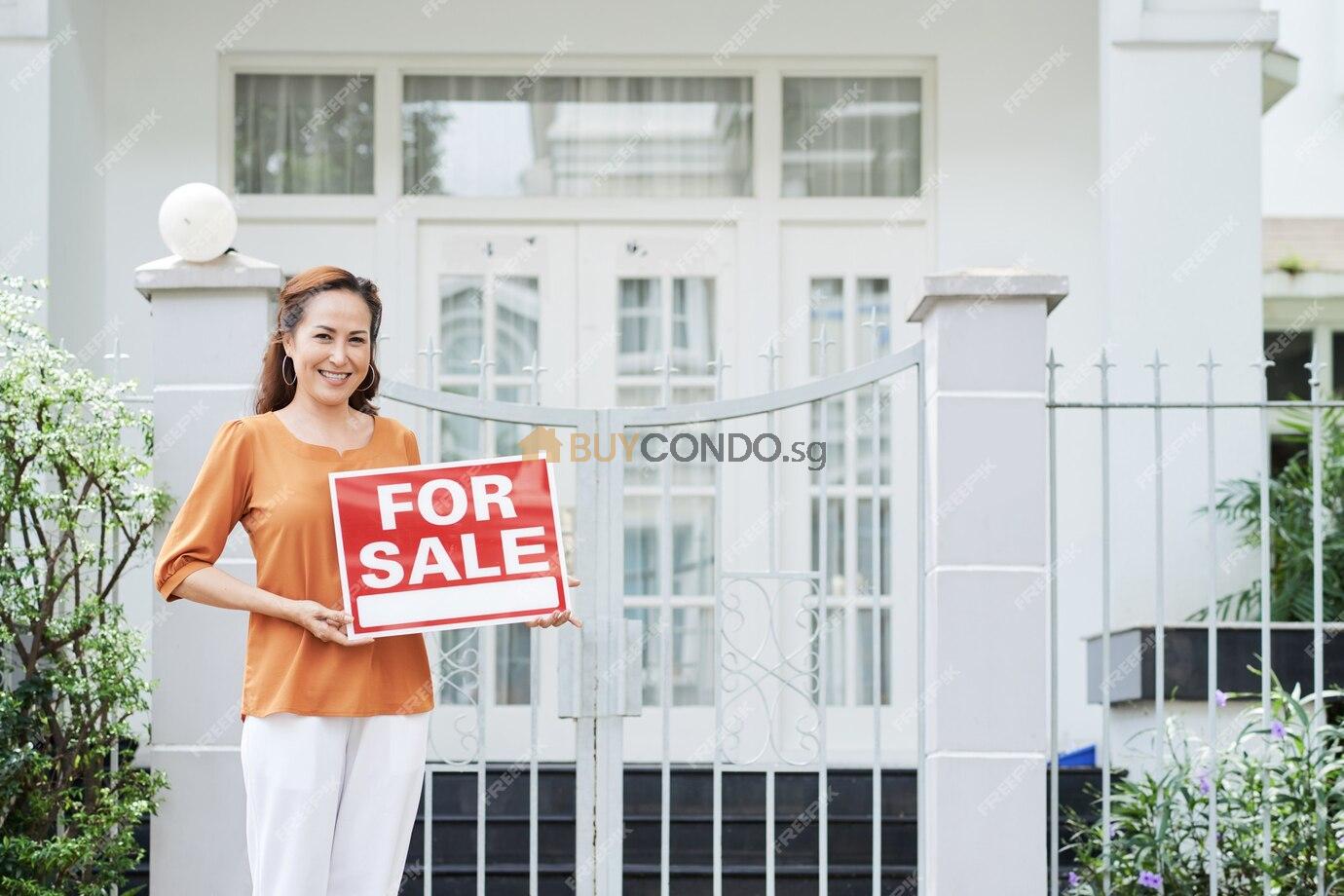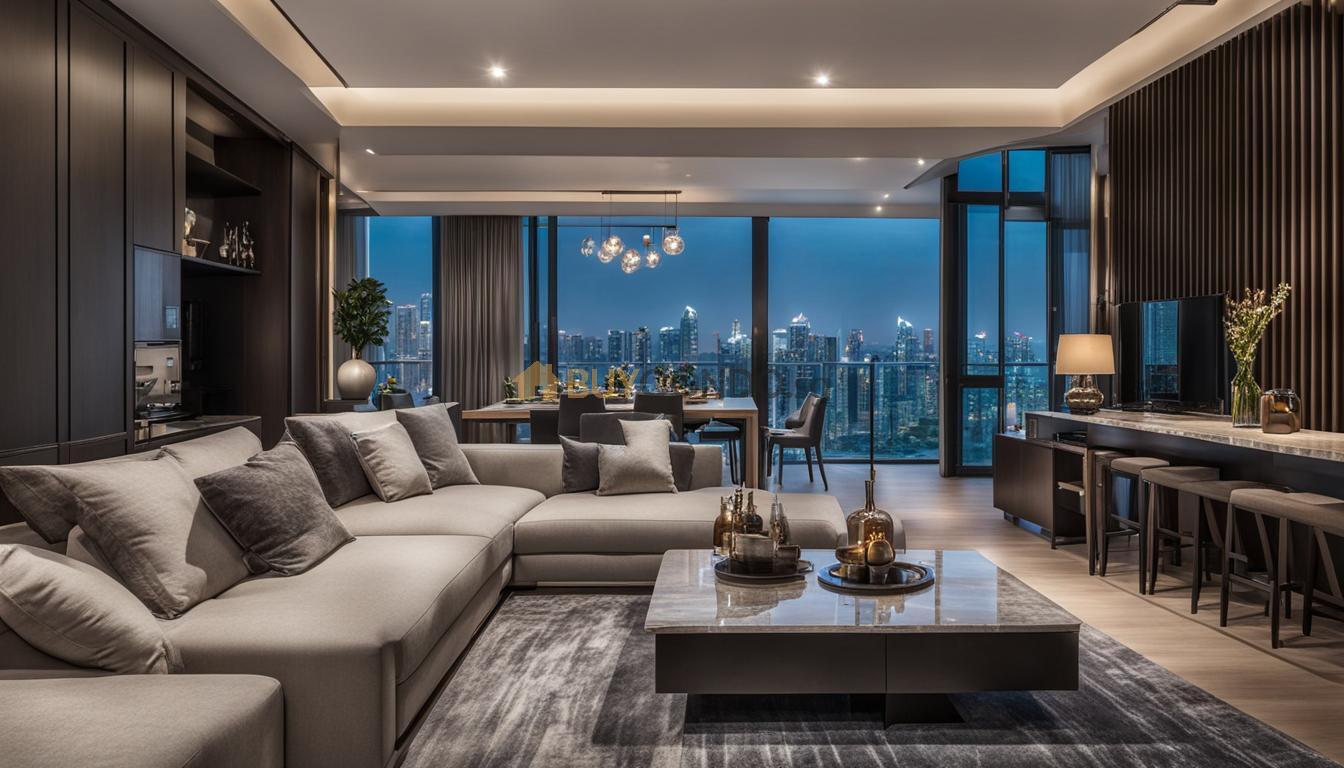The post Newly MOP HDB vs Older Resale HDB appeared first on Wing Tai Holdings Singapore.
]]>Hey there, homebuyers! Are you ready to dive into the exciting world of HDB flats in Singapore? Well, get ready for a dilemma! When it comes to purchasing a home, Singaporeans face a tough choice between newly MOP HDB flats and older resale HDB flats. It’s a decision that can make your head spin faster than a ferris wheel in Marina Bay Sands.
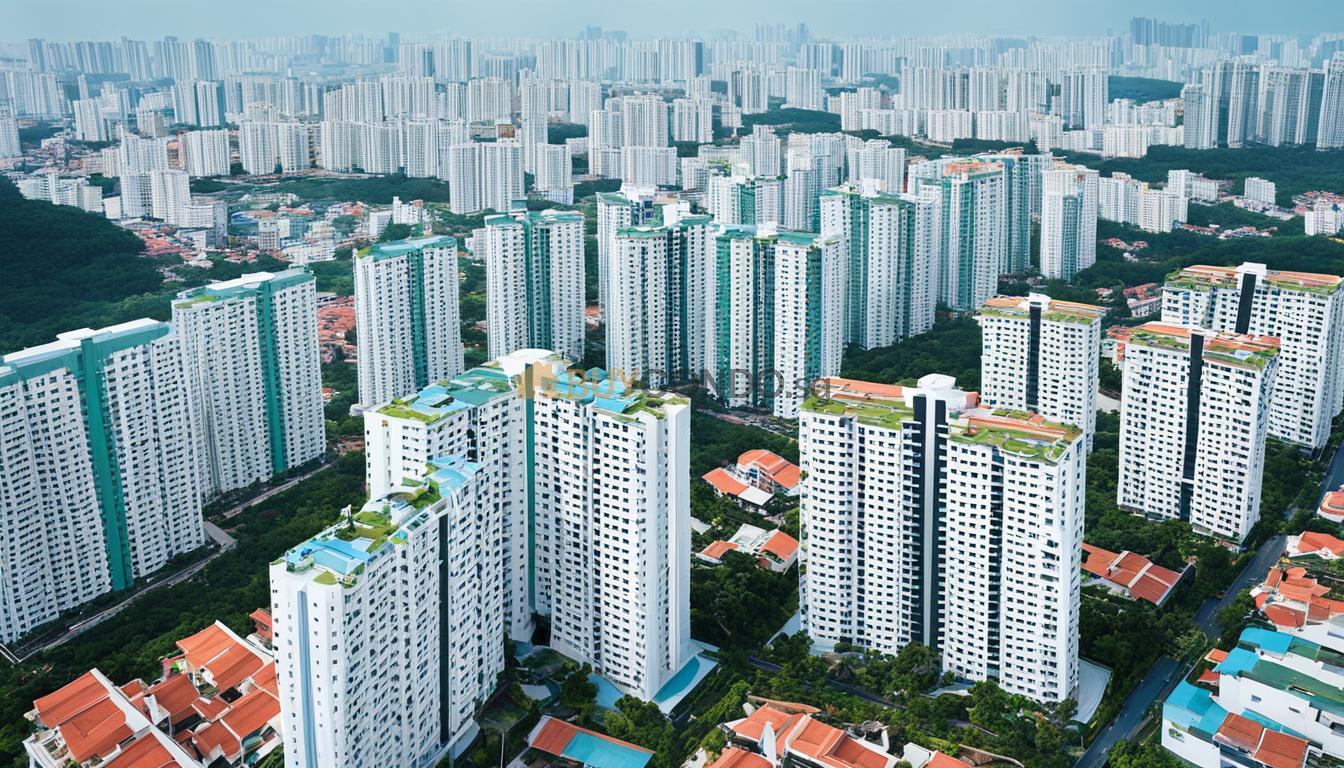
But fear not, my fellow homebuyers, for I am here to shed some light on this perplexing predicament. In this article, we’ll explore the factors that you need to consider in order to make an informed decision. From the core differences between newly MOP HDB flats and older resale HDB flats to the impact of the Minimum Occupation Period (MOP) on property value, we’ve got you covered.
So strap in, grab your kopi from the nearest kopi tiam, and let’s embark on this HDB adventure together!
Key Takeaways:
- Choosing between newly MOP HDB flats and older resale HDB flats can be a daunting task for homebuyers in Singapore.
- Factors such as property age, lease considerations, and pricing differentiate these two options.
- The Minimum Occupation Period (MOP) plays a significant role in the value and eligibility of HDB flats.
- Consider your life stage, room requirements, and investment potential when making your decision.
- Don’t forget to factor in amenities, location, and long-term returns to ensure a well-rounded evaluation.
Introduction: The Quest for Affordable Homeownership in Singapore
Affordable homeownership is no small feat in Singapore, where the high cost of real estate has left many aspiring homeowners grappling with the challenge of finding a place to call their own. As a homebuyer in Singapore, the dream of owning a property that meets both your budget and your needs requires careful consideration and a thorough understanding of the housing market. In this article, we will explore the various factors that contribute to the affordability of homeownership in Singapore, helping you navigate the complexities of the real estate landscape.
One of the key drivers behind the quest for affordable homeownership is the significant financial burden that comes with purchasing a property. The demand for housing in Singapore, coupled with limited land availability, has driven property prices to unprecedented heights. As a result, many homebuyers find themselves in a constant struggle to secure a home that fits their budget without compromising on quality and location.
“Affordable homeownership is not just about finding a property at a lower price. It’s about finding a balance between price, location, and the long-term financial implications of owning a home,” says John Tan, a real estate expert in Singapore.
In addition to the financial aspects, the scarcity of available housing options also contributes to the challenge of affordable homeownership. Singapore’s housing market is primarily dominated by public housing, known as HDB (Housing and Development Board) flats, which are typically more affordable compared to private properties. However, factors such as location, size, and leasehold status further influence their price and availability.
Despite these challenges, the Singaporean government has implemented various measures to support and promote affordable homeownership. These include grants, subsidies, and loan schemes aimed at helping first-time homebuyers overcome financial barriers. Additionally, the government has introduced policies to ensure a balanced and sustainable housing market, such as the Minimum Occupation Period (MOP) requirement for HDB flats.
Throughout this article, we will explore the factors that influence affordable homeownership in Singapore, providing insights and practical advice to help you make informed decisions in your quest for the perfect home. From understanding the core differences between newly MOP HDB flats and older resale HDB flats, to evaluating lease considerations and exploring property value trends across different regions, we will guide you through the complexities of the Singapore property market. So, let’s dive in and discover the path to affordable homeownership in Singapore!
Newly MOP HDB vs. Older Resale HDB: The Core Differences
When it comes to purchasing a home in Singapore, there is a crucial decision that homebuyers have to make: choosing between newly Minimum Occupation Period (MOP) HDB flats and older resale HDB flats. Understanding the core differences between these two options is essential in making an informed choice.
To begin with, one of the key distinctions between newly MOP HDB flats and older resale HDB flats is their property age. Newly MOP HDB flats typically refer to those that have completed the MOP period and are ready for occupancy, while older resale HDB flats have been previously owned and can vary in terms of age and condition.
Another critical factor to consider is the lease. Newly MOP HDB flats generally come with a longer remaining lease, offering more years of ownership. On the other hand, older resale HDB flats may have a shorter remaining lease, which could impact their value and the ability to secure financing.
Pricing is also an important aspect to compare. Newly MOP HDB flats tend to have a higher price due to their newer condition and longer remaining lease. Older resale HDB flats, on the other hand, may come at a relatively lower price, taking into account factors such as property age and remaining lease.
Understanding these core differences between newly MOP HDB flats and older resale HDB flats is crucial for homebuyers to evaluate and prioritize their needs and preferences. Whether it’s prioritizing a longer remaining lease, a lower price, or a newer property, each option has its own advantages and considerations.
Ultimately, the choice between newly MOP HDB flats and older resale HDB flats will depend on individual circumstances, financial capabilities, and future plans. It is recommended to carefully evaluate these factors and seek professional advice before making a decision.
Visual representation of the core differences between newly MOP HDB and older resale HDB.
| Factors | Newly MOP HDB | Older Resale HDB |
|---|---|---|
| Property Age | Newer | Varies |
| Lease | Longer Remaining Lease | Shorter Remaining Lease |
| Pricing | Higher | Relatively Lower |
Understanding the Minimum Occupation Period (MOP) and Its Impact on Property Value
When considering the purchase of a newly MOP HDB flat or an older resale HDB flat, it is essential to understand the concept of the Minimum Occupation Period (MOP) and its influence on property value. The MOP is a crucial factor that directly affects the marketability and value of your home.
What is MOP and Why Does It Matter?
The Minimum Occupation Period (MOP) refers to the mandatory period during which HDB flat owners are required to live in their property before they are eligible to sell or rent it out. This policy aims to ensure stable communities and provide homeowners with the opportunity to establish roots in their neighborhood. The MOP duration typically ranges from 5 years.
“The MOP is like a commitment period, where homeowners are encouraged to settle down and contribute to the community without the distractions of property speculation.”
During the MOP, homeowners are not allowed to sell, transfer ownership, or rent out their flat. Violating the MOP regulations can result in penalties or legal repercussions. Therefore, it is crucial to understand and comply with the MOP guidelines to avoid any complications in the future.
The Influence of MOP on Newly Acquired HDBs
For those looking to purchase a newly MOP HDB flat, it is important to consider the impact of the MOP on the property value. Newly MOP HDB flats are still within the MOP period, which means that their marketability is limited. Buyers who plan to sell the flat before the MOP ends may face challenges in finding potential buyers due to the restrictions imposed.
However, it’s worth noting that once the MOP period is over, the value and marketability of the HDB flat may increase significantly. The completion of the MOP allows homeowners to explore various options, such as selling or renting out the property, thereby increasing its potential value. Additionally, being in a mature estate or a desirable location can further enhance the overall value of the HDB flat once the MOP is fulfilled.
| MOP Status | Implications on Property Value |
|---|---|
| Before MOP | Limited marketability and restricted selling options |
| After MOP | Potential increase in value and marketability, more selling and renting options available |
As with any property investment, it is important to consider your long-term goals and financial capability when deciding between newly MOP HDB flats and older resale HDB flats. Understanding the MOP and its implications on property value can help you make a more informed decision.
https://buycondo.sg/hdb-vs-private-condominium-which-is-more-significant/
Evaluating Property Lifespan: Lease Considerations for HDB Flats
When considering purchasing an HDB flat, it is essential for homebuyers to evaluate the lifespan of the property and take into account the lease considerations. The property lifespan and lease remaining on HDB flats can significantly impact the value and longevity of the property, making it a crucial factor in the decision-making process.
One of the key aspects to consider is the remaining lease on the HDB flat. HDB flats have a lease of 99 years, and it is important to assess how many years are left on the lease before making a purchase. The lease remaining affects both the potential resale value of the property and the buyer’s ability to enjoy the property over the long term.
With a shorter lease remaining, the property may become less desirable in the resale market as its value decreases over time. Additionally, as the lease gets closer to expiry, the HDB flat may become less attractive to potential buyers, making it harder to sell in the future. Therefore, considering the lease remaining is crucial for buyers who are looking for a property with long-term investment potential.
However, it’s important to note that the remaining lease does not solely determine the value of an HDB flat. Other factors such as location, amenities, and the overall condition of the flat also play a significant role. Buyers should evaluate the lease considerations in conjunction with these factors to make a well-rounded assessment of the property’s value and potential.
Moreover, for buyers who plan to live in the HDB flat for the entire lease duration, the remaining lease may be less of a concern. In such cases, the focus may be more on the suitability of the flat for the buyer’s current and future needs, rather than its potential resale value.
“The lease considerations for HDB flats require careful evaluation. It’s not just about the number of years remaining, but also the overall condition, location, and amenities of the property. It’s important to find the right balance that aligns with your long-term goals and preferences.”
| Lease Considerations | Impact |
|---|---|
| Shorter remaining lease | – Decreased resale value – Potential difficulty in finding buyers – Limited long-term investment potential |
| Longer remaining lease | – Higher resale value – Increased attractiveness to potential buyers – Extended long-term investment potential |
| Living in the property for entire lease duration | – Focus on suitability for current and future needs – Resale value may be of less priority |
Assessing the property lifespan and taking lease considerations into account is a critical step in making an informed decision when buying an HDB flat. By carefully evaluating the remaining lease and considering other factors that influence the value of the property, homebuyers can ensure that their investment aligns with their long-term goals and preferences.
Life Stages and Housing Choices: From Singles to Young Families
Different life stages present unique housing challenges and considerations. As individuals transition through various stages of life, their housing needs and preferences naturally evolve. From singles seeking youthful independence to young families in need of space and stability, each life stage brings its own set of housing choices.
When Youthful Independence Clashes with Housing Rules
Singles often value their independence and desire a housing arrangement that aligns with their lifestyle. However, in Singapore, housing rules can pose challenges for single individuals. The Housing and Development Board (HDB) sets specific eligibility criteria for purchasing certain types of housing, such as public housing flats. Singles may face restrictions or limitations when it comes to buying a home that suits their preferences.
However, there are alternative housing choices available for singles in Singapore. Private rental options, such as condominiums or apartments, provide greater flexibility and fewer restrictions compared to HDB flats. These options allow singles to enjoy the freedom and independence they desire without being confined by the housing rules that apply to public housing. Additionally, co-living arrangements are gaining popularity among singles, offering a cost-effective and communal living experience.
Advantages for Married Couples in the HDB Market
Married couples, on the other hand, often enjoy certain advantages in the HDB market. The HDB offers various housing schemes and grants specifically designed for married couples, making it easier for them to own a home. These schemes include the Married Child Priority Scheme, the Parenthood Priority Scheme, and the Proximity Housing Grant, among others.
Married couples can also benefit from the stability and affordability of HDB flats. HDB estates typically provide a range of amenities, such as schools, parks, and community centers, which are ideal for families with young children. The strong sense of community within HDB estates can also contribute to a fulfilling family-oriented lifestyle.
Ultimately, the housing choices available to singles and young families depend on individual circumstances, preferences, and financial capabilities. Considering the clash between youthful independence and housing rules for singles, as well as the advantages offered to married couples in the HDB market, can help individuals make informed decisions about their housing options.
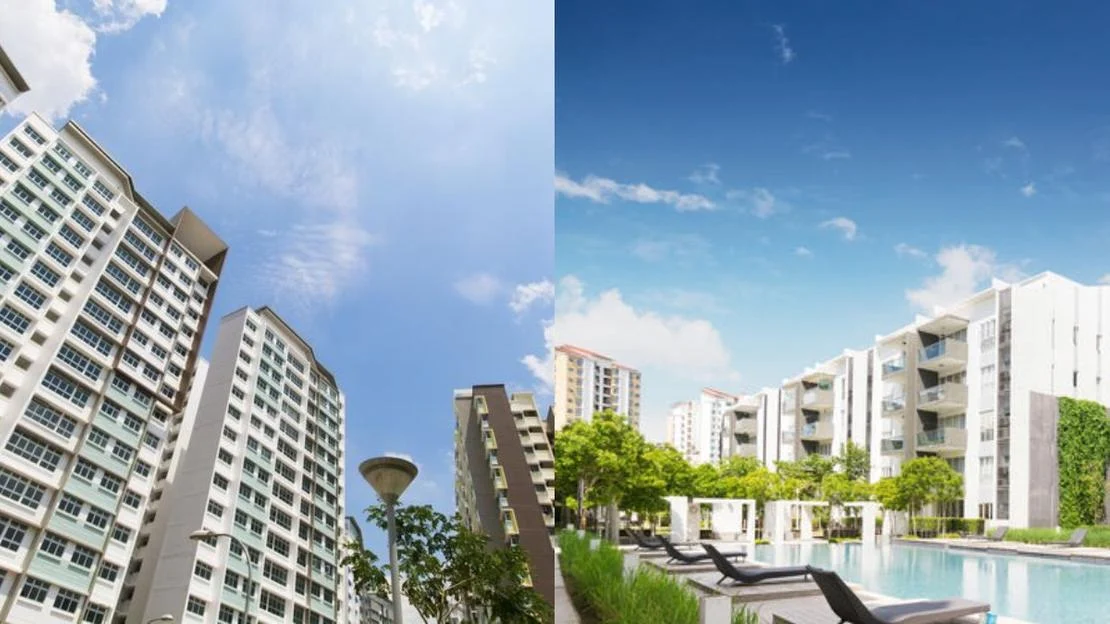
Envisioning Your Long-Term Residence: Newly MOP-ed HDB vs. Aging Resale Options
Projection of Home Value Over Time
When choosing between newly MOP-ed HDB flats and aging resale options, it’s essential to consider the projection of home value over time. Investing in a property is a long-term decision, and understanding how it may appreciate or depreciate in value can have a significant impact on your financial future.
Considering Comfort and Community Ties in Your Decision
It’s not just about the monetary aspect when deciding between newly MOP-ed HDB flats and aging resale options. The comfort and sense of belonging that come with living in a community should also play a crucial role in your decision-making process.
When you envision your long-term residence, think about the amenities, facilities, and neighborhood characteristics that matter most to you. Are you looking for a vibrant, bustling neighborhood with a diverse range of shops and restaurants? Or do you prefer a quieter, close-knit community with plenty of green spaces for relaxation?
Consider the proximity to essential amenities such as schools, healthcare facilities, and transportation options. Furthermore, think about the availability of recreational centers, parks, and community spaces that foster social interaction and the building of lasting relationships with your neighbors.
Your long-term residence isn’t just a physical structure; it’s where you’ll create memories, forge friendships, and establish community ties. Don’t underestimate the importance of finding a place that aligns with your lifestyle and offers the support and camaraderie that contribute to a fulfilling living experience.
With the projection of home value over time and the consideration of comfort and community ties, you’ll be better equipped to make an informed decision about your long-term residence. So take the time to analyze the factors that matter most to you and choose the option that aligns with your goals and aspirations.
Size Matters: Room Requirements for Different Buyer Profiles
When it comes to purchasing a home, the size of the rooms can make a big difference. Homebuyers have different room requirements based on their profiles, and it’s important to consider these needs before making a decision.
For families with children, spacious bedrooms are a top priority. Kids need space to play, study, and grow. Having enough room for a bed, a desk, and storage is essential for their comfort and development.
On the other hand, young professionals or couples without children may prioritize a home office or a spare room for hobbies. Whether it’s for remote work, creative pursuits, or a small home gym, having an extra space can enhance the overall livability of the home.
For elderly individuals or those with mobility challenges, a well-designed bedroom and bathroom that are easily accessible and can accommodate assistive devices can greatly improve comfort and quality of life.
Decoding the Singapore Property Market: Ideal Regions for HDB Flats
When it comes to investing in HDB flats, understanding the Singapore property market is crucial. Different regions offer unique advantages and property value trends that can greatly impact your investment decision. In this section, I will help you decode the Singapore property market and identify the ideal regions for HDB flats.
Property Value Trends Across Different Regions
The property value trends across different regions in Singapore can vary significantly. Factors such as location, amenities, and accessibility can greatly influence the value of HDB flats. It’s important to consider both current market conditions and potential future developments when assessing property value trends.
To illustrate the varying property value trends, let’s take a look at the following table:
| Region | Average HDB Flat Price | Property Value Trend |
|---|---|---|
| Central Region | $800,000 | Stable |
| North Region | $450,000 | Stable |
| East Region | $550,000 | Slightly increasing |
| West Region | $450,000 | Moderately increasing |
As you can see, the Central Region has experienced rapid property value growth, making it an ideal region for HDB flat investments. The North and East Regions offer stability and moderate growth, while the West Region provides more affordable options with moderate value increases. Understanding these trends can help you make an informed decision based on your budget and investment goals.
Finding the Sweet Spot: Location vs. Property Age
When choosing an ideal region for your HDB flat, it’s important to strike a balance between location and property age. While a prime location can offer convenience and potential for higher property value appreciation, the age of the property plays a significant role in maintenance costs and potential renovations.
Remember, it’s not just about the location – it’s about finding the sweet spot where location aligns with your property age preferences.
For example, if you prefer a vibrant city lifestyle, the Central Region might be your sweet spot, where newer developments offer modern amenities and easy access to downtown attractions. On the other hand, if you value a more tranquil environment and are willing to invest in renovations, an older HDB flat in the North Region might be suitable for you.
By carefully considering the location and property age, you can find the sweet spot that aligns with your lifestyle, budget, and long-term investment goals.
Considering Renovations: Additional Costs for Your Dream Home
When it comes to purchasing your dream home, renovations can be a crucial factor to consider. While you may have found the perfect HDB flat, it’s important to evaluate the additional costs and financial implications that come with upgrading and personalizing your space.
Determining Your Readiness for Property Makeovers
Before diving into renovations, it’s essential to assess your readiness for property makeovers. Consider the following factors:
- Time: Renovations require time and effort. Assess whether you have the bandwidth to manage the process or if you need to hire professionals.
- Budget: Establish a realistic budget for your renovation project. Evaluate your financial readiness and ensure you have sufficient funds to cover the additional costs.
- Personal Preferences: Understand your design preferences and the extent of changes you desire. Determine if you’re open to minor upgrades or if you’re looking for a complete overhaul.
- Practical Considerations: Evaluate the practicality of renovations, taking into account your lifestyle, family needs, and any future plans that may affect the longevity of the improvements.
By carefully considering these factors, you can determine if you’re truly ready to take on property makeovers and make an informed decision based on your individual circumstances.
The Financial Implications of Upgrading an HDB Flat
Upgrading an HDB flat involves financial implications that should not be overlooked. Apart from the cost of the renovations themselves, there are other considerations to keep in mind:
- Additional Costs: Renovations often come with unforeseen expenses such as permits, contractor fees, and potential delays. Factor in these additional costs to avoid any surprises.
- Value-Added: While renovations can enhance your living experience, it’s important to assess whether they will add value to your HDB flat. Consider the potential increase in property value and the overall market demand for upgraded units in your area.
- Selling or Renting: If you plan to sell or rent out your HDB flat in the future, evaluate the return on investment (ROI) of your renovations. Will the upgrades significantly impact the rental or resale value of your property?
Understanding the financial implications of upgrading an HDB flat will help you make smart decisions and ensure you stay within your budget while still achieving your dream home.
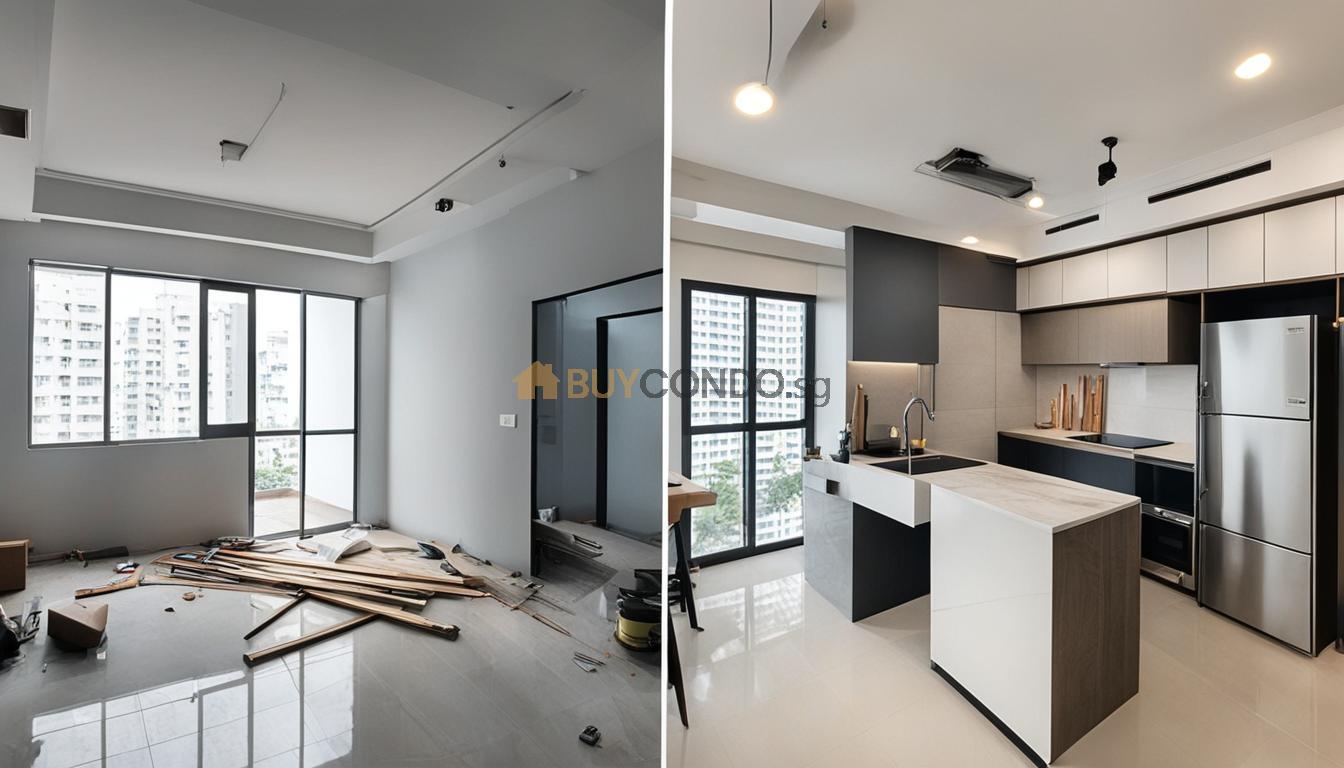
Amenity Considerations: What’s Important in Your HDB Living Experience?
When it comes to choosing the perfect HDB flat, amenity considerations can make all the difference in creating a comfortable and convenient living experience. As a savvy homebuyer, it’s important to evaluate the amenities available in the surrounding area and within the HDB estate itself to ensure you’re making the right decision.
One of the key amenity considerations is the proximity to essential facilities such as schools, healthcare centers, and shopping malls. Having these amenities nearby can greatly enhance your daily life, offering convenience and accessibility to everything you need.
Furthermore, recreational amenities play a significant role in improving your overall living experience. Look out for nearby parks, sports facilities, and community centers that offer opportunities for leisure activities, exercise, and socializing. These amenities not only promote a healthier lifestyle but also encourage a sense of community and connection.
In addition to external amenities, it’s important to consider the facilities within the HDB estate itself. Many newer HDB flats come equipped with a wide range of facilities such as playgrounds, fitness corners, and swimming pools. These on-site amenities provide convenience and entertainment right at your doorstep, ensuring that there’s always something to do within the estate.
When assessing amenity considerations, it’s essential to prioritize your personal preferences and lifestyle needs. Consider what amenities are most important to you and align them with your daily routine and long-term goals. By doing so, you’ll be able to make a well-informed decision that caters to your unique living experience.
Remember, an HDB flat is not just a physical dwelling, but a place where you’ll be building a life. So, take the time to carefully evaluate the amenity considerations and create a living experience that meets your expectations and enhances your quality of life.
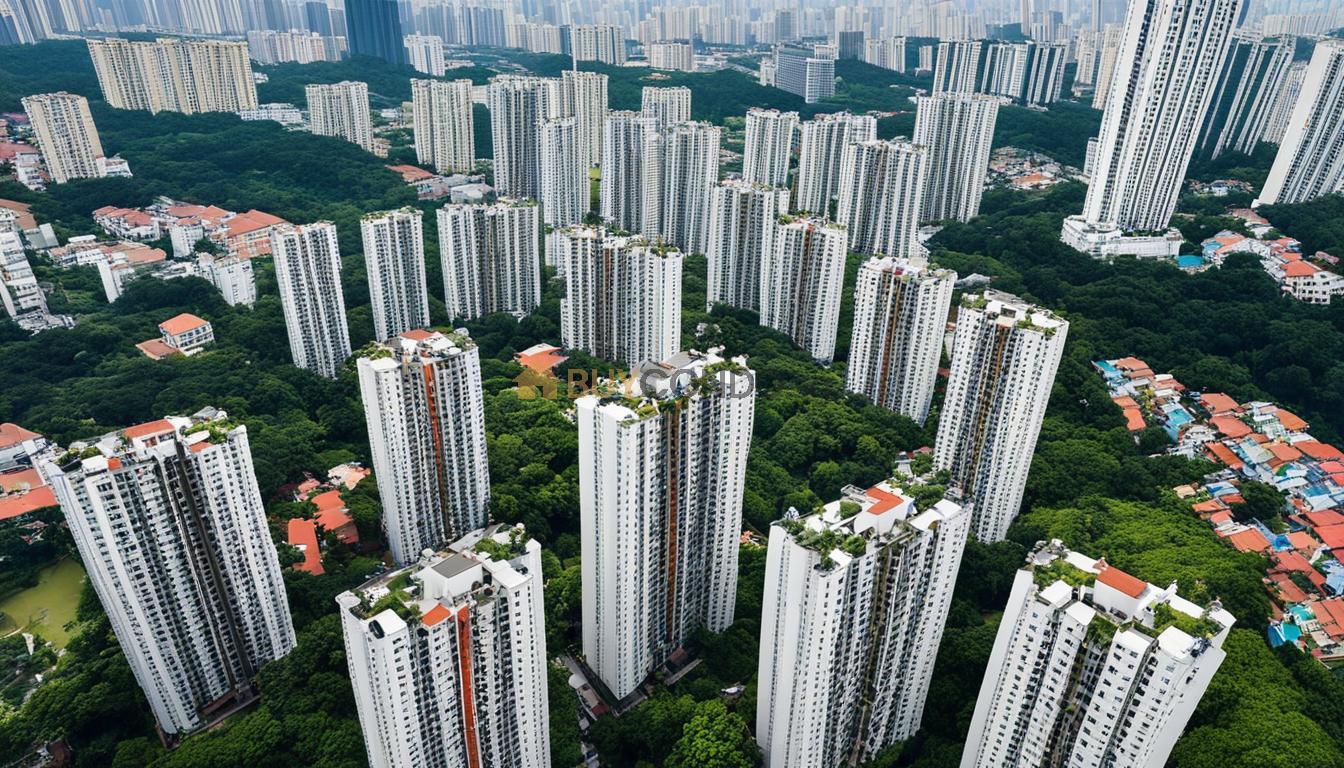
Assessing Investment Potential: Understanding Long-term Returns on HDB Properties
When it comes to purchasing a home, it’s not just about finding the perfect place to live. Homebuyers also need to consider the investment potential of their property. In the case of HDB properties, understanding the long-term returns is crucial to making a wise decision.
Investing in an HDB property offers unique opportunities for long-term growth and stability. With Singapore’s strong real estate market, HDB properties have the potential to appreciate in value over time, providing homeowners with significant returns on their investment.
One of the key factors that contribute to the investment potential of HDB properties is the location. HDB flats located in desirable neighborhoods with good amenities and accessibility tend to appreciate at a higher rate. These properties attract a larger pool of potential buyers, which can drive up their value over time.
Additionally, the supply and demand dynamics of the HDB market play a role in determining the long-term returns. HDB flats with limited supply and high demand are more likely to experience price appreciation. As the population in Singapore continues to grow, the demand for HDB properties is expected to remain strong.
It’s also important to consider the lease of the HDB property when assessing its investment potential. HDB flats have a leasehold tenure, and the length of the lease remaining can impact the value of the property. Homebuyers should take into account the remaining lease and consider how it aligns with their long-term investment goals.
In addition to potential capital appreciation, HDB properties can also provide a steady rental income. With the growing demand for rental properties in Singapore, homeowners have the opportunity to generate passive income by renting out their HDB flats. This can contribute to the overall long-term returns of the investment.
However, it’s important to note that while HDB properties have strong investment potential, they are subject to certain restrictions. For example, homeowners are not allowed to sublet their entire HDB flat if they have not met the Minimum Occupation Period (MOP). This limitation should be taken into account when evaluating the investment potential of an HDB property.
In conclusion, assessing the investment potential of HDB properties is essential for homebuyers looking to make a wise and profitable purchase. By considering factors such as location, supply and demand, lease considerations, and rental income, homebuyers can gain a better understanding of the long-term returns they can expect from their HDB investment.
Conclusion: Making an Informed Choice Between Newly MOP HDB and Older Resale HDB
Well, here we are at the end of our journey through the world of HDB flats in Singapore. It’s been quite a ride, hasn’t it? We’ve explored the core differences between newly MOP HDB flats and older resale options, learned about the Minimum Occupation Period (MOP), and dived into the importance of lease considerations. But now, it’s time to make that crucial decision: which path will you choose?
When it comes to buying a home, making an informed choice is key. It’s not just about the property itself but also about your personal circumstances and goals. Take some time to reflect on what truly matters to you. Consider your budget, your lifestyle, and your long-term plans. Think about the pros and cons of each option and how they align with your needs.
For some, the allure of a brand-new HDB flat, waiting eagerly after the Minimum Occupation Period (MOP), might be too hard to resist. The idea of a fresh start with modern amenities and facilities can be exciting. On the other hand, older resale options have their own charm – more spacious layouts, established communities, and the possibility of scoring a great location.
Ultimately, there is no right or wrong answer. It all boils down to what you value most. So, take your time, consult with your loved ones, and weigh the pros and cons. Make that informed choice that will bring you closer to your dream home. Good luck, and may your newly MOP HDB or older resale HDB be everything you’ve ever wished for!
FAQ
What are the main differences between newly MOP HDB flats and older resale HDB flats?
Newly MOP HDB flats are newly developed and have not reached the Minimum Occupation Period (MOP) required by the government. Older resale HDB flats are previously owned and have already passed the MOP. This means that newly MOP HDB flats are generally newer and may have a longer lease, while older resale HDB flats may have a shorter lease but may be available in more established areas.
What is the Minimum Occupation Period (MOP) and why does it matter?
The Minimum Occupation Period (MOP) is the minimum period of time that homeowners are required to live in their HDB flat before they are eligible to sell it in the open market. The MOP is enforced by the government to ensure that HDB flats are primarily used for housing purposes and not for speculative investment. The MOP is important because it affects the resale value and marketability of the HDB flat.
How does the remaining lease on an HDB flat affect its value and longevity?
The remaining lease on an HDB flat affects its value and longevity. As the lease gets shorter, the value of the HDB flat may decrease as potential buyers may be concerned about the limited remaining lease. Additionally, the lease determines the duration of ownership, and a shorter lease may mean that the HDB flat may not be a long-term housing option.
What housing choices are available for singles?
Singles in Singapore have limited housing choices. They are only eligible to purchase resale HDB flats or rent housing in the open market. However, there are certain restrictions and guidelines that singles need to adhere to when purchasing or renting a home, which can clash with their desire for youthful independence.
What advantages do married couples have in the HDB market?
Married couples have certain advantages in the HDB market. They are eligible to purchase both newly MOP HDB flats and resale HDB flats. Additionally, they may be eligible for housing grants and subsidies provided by the government to assist with the purchase of their first HDB flat.
How does the projection of home value over time differ between newly MOP HDB flats and aging resale options?
The projection of home value over time can differ between newly MOP HDB flats and aging resale options. Newly MOP HDB flats may have a longer lease and may hold their value better in the long run. However, the location and demand for the specific resale HDB flat can also play a significant role in its value appreciation or depreciation.
What are the room requirements for different buyer profiles?
The room requirements for different buyer profiles can vary. For example, singles may prioritize a smaller unit or a studio apartment, while families may require multiple bedrooms to accommodate their members. It is important for homebuyers to assess their own needs and preferences in terms of room size and layout.
How can I identify ideal regions for HDB flats in Singapore?
To identify ideal regions for HDB flats in Singapore, you can consider property value trends across different regions. Certain regions may have higher demand and better amenities, which can impact the value of HDB flats in those areas. Additionally, finding the balance between location and property age is crucial in determining an ideal region for HDB flats.
What are the additional costs of renovations when purchasing an HDB flat?
When purchasing an HDB flat, there are additional costs to consider for renovations. These costs can vary depending on the extent of the renovations and the desired upgrades. Homebuyers should assess their readiness for property makeovers and consider the financial implications of upgrading an HDB flat.
What amenity considerations should I keep in mind when choosing an HDB flat?
When choosing an HDB flat, it is important to consider the nearby amenities. These can include access to public transportation, shopping centers, schools, parks, and recreational facilities. Having convenient access to these amenities can greatly enhance the HDB living experience.
How can I assess the investment potential of HDB properties?
To assess the investment potential of HDB properties, it is important to understand the long-term returns. This involves analyzing historical price appreciation, rental demand, and potential future developments in the surrounding area. It is important to evaluate the investment potential based on your specific goals and financial situation.
How can I make an informed choice between newly MOP HDB flats and older resale HDB flats?
To make an informed choice between newly MOP HDB flats and older resale HDB flats, you need to consider factors such as property age, lease considerations, pricing, personal circumstances, and long-term goals. Evaluating these factors will help you make a decision that aligns with your needs and preferences.
The post Newly MOP HDB vs Older Resale HDB appeared first on Wing Tai Holdings Singapore.
]]>The post Joint Tenancy vs Tenancy in Common appeared first on Wing Tai Holdings Singapore.
]]>
When it comes to property ownership in Singapore, it’s important to be familiar with the different forms of co-ownership. Knowing your rights is crucial to making informed decisions whether you’re considering joint tenancy or tenancy in common. In this article, we’ll explore the key differences between joint tenancy and tenancy in common, as well as the implications of each form of co-ownership.
Joint tenancy and tenancy in common are two popular forms of co-ownership in Singapore. While sole ownership allows for complete control over a property, co-ownership brings its own set of considerations. Let’s delve deeper into the specifics of each form and understand how they differ.
Key Takeaways: Joint Tenancy vs Tenancy in Common
- Joint tenancy and tenancy in common are two forms of co-ownership in Singapore.
- Joint tenancy does not allow for specific shares, and the right of survivorship ensures automatic transfer of ownership upon the death of a joint tenant.
- Tenancy in common allows for undivided shares in the property, and ownership can be transferred to beneficiaries according to the co-owner’s will or the Intestate Succession Act.
- Understanding the differences between joint tenancy and tenancy in common is crucial for making informed decisions regarding property ownership and estate planning.
- Seek legal advice to fully understand your rights and responsibilities as a co-owner in Singapore.
Tenancy in Common – Dividing Shares in Property
Tenancy in common is a form of co-ownership where each co-owner has an ‘undivided share’ in the property, which is specified in the title deed. This means that although the property remains physically undivided, each owner can identify their own distinct share. In the event of a co-owner’s death, their ownership in the property is transferred to their beneficiaries according to their will or the Intestate Succession Act.
For example, if three people own a house, they can agree to divide their shares based on their rate of contribution. If one co-owner passes away, their share is transferred to their beneficiaries while the ownership of the remaining co-owners remains unchanged.
To illustrate, here is an example of how shares can be divided:
| Co-owner | Rate of Contribution | Share in Property |
|---|---|---|
| Co-owner A | 40% | 40% |
| Co-owner B | 30% | 30% |
| Co-owner C | 30% | 30% |
“Tenancy in common allows for the division of shares based on each co-owner’s rate of contribution, ensuring a fair distribution of ownership interests.”
In this example, Co-owner A contributed 40% of the purchase price, while Co-owners B and C contributed 30% each. This division of shares provides clarity and transparency regarding each co-owner’s interest in the property, and ensures that the ownership percentages are proportional to their respective contributions.
Joint Tenancy – No Specific Shares, Right of Survivorship
When it comes to co-owning a property, joint tenancy is a popular option that offers unique advantages. In joint tenancy, the co-owners do not have specific shares in the property. Instead, they collectively own the entire property, undivided. This means that the property does not physically have separate portions assigned to each co-owner. The right of survivorship is a key feature of joint tenancy. If one of the joint tenants passes away, their share automatically transfers to the remaining joint tenants, without the need for probate or a will.
“In joint tenancy, you and your co-owners share an undivided interest in the whole property. When one co-owner passes away, their share automatically transfers to the surviving co-owners. This ensures a seamless transfer of ownership and avoids complications.”
Unlike tenancy in common, where each co-owner has a specified share that can be willed to beneficiaries, joint tenancy does not allow for the distribution of individual shares. Instead, it ensures that the surviving co-owners retain full ownership of the property. This makes joint tenancy a popular choice for spouses and family members who want to ensure that their loved ones can continue to own and enjoy the property without legal complexities.
Comparing Joint Tenancy and Tenancy in Common
Joint tenancy and tenancy in common are two forms of co-ownership with distinct characteristics. While joint tenancy emphasizes equal ownership and the right of survivorship, tenancy in common focuses on individual shares and the ability to will them to beneficiaries. Here’s a quick comparison:
| Joint Tenancy | Tenancy in Common |
|---|---|
| Co-owners do not have specific shares | Co-owners have specified shares |
| Right of survivorship | No right of survivorship |
| Seamless transfer of ownership | Shares can be willed to beneficiaries |
| Common among spouses and family members | Allows for division of shares based on contributions |
Both joint tenancy and tenancy in common have their benefits and considerations. Understanding the differences can help you make the right choice based on your co-ownership goals and preferences.

Tenancy in Common vs Joint Tenancy: Pros and Cons
When considering property ownership in Singapore, it’s essential to understand the pros and cons of tenancy in common and joint tenancy. Both forms of co-ownership have unique characteristics that can significantly impact flexibility, transfer of ownership, and estate planning.
Advantages of Tenancy in Common:
- Flexibility: Tenancy in common allows co-owners to divide shares based on contributions, providing flexibility when purchasing high-value properties.
- Liquidity: With each co-owner having an undivided share, tenancy in common allows for easy transfer of ownership to beneficiaries upon death.
- Estate Planning: By specifying shares and allowing for individual control, tenancy in common offers more options for estate planning, ensuring assets are distributed according to the owner’s wishes.
Advantages of Joint Tenancy:
- Right of Survivorship: Joint tenancy includes the right of survivorship, allowing the remaining joint tenants to automatically take over the property without referring to a will or the Intestate Succession Act.
- Spousal Relationship: Joint tenancy is particularly beneficial for married couples, as it simplifies estate planning and allows for seamless transfer of ownership, avoiding estate duty.
Comparison of Tenancy in Common and Joint Tenancy
| Tenancy in Common | Joint Tenancy | |
|---|---|---|
| Flexibility | Allows division of shares based on contributions | Equal ownership rights, no specified shares |
| Liquidity | Enables easy transfer of ownership to beneficiaries | Right of survivorship, property automatically transfers to remaining joint tenants |
| Estate Planning | Offers more options for estate planning, allows for individual control | Simplifies estate planning, avoids estate duty for married couples |
Choosing between tenancy in common and joint tenancy depends on your specific needs and circumstances. If you value flexibility, control over shares, and estate planning options, tenancy in common may be the right choice. On the other hand, joint tenancy is advantageous for those seeking seamless transfer of ownership and who are in a spousal relationship.
It’s crucial to assess eligibility requirements, consult with legal professionals, and carefully consider the implications of each form of co-ownership before making a decision. By understanding the pros and cons of tenancy in common and joint tenancy, you can make an informed choice that aligns with your ownership goals and estate planning objectives.
How Joint Tenancy Works for HDB Property Ownership
When it comes to property ownership in Singapore, joint tenancy is a popular option for HDB flats. In joint tenancy, all joint tenants have equal ownership rights and benefit from the right of survivorship. This means that if one joint tenant passes away, their share automatically transfers to the surviving joint tenants. It offers a seamless transfer of ownership without the need for a will or the Intestate Succession Act.
To apply for joint tenancy for an HDB property, all co-owners must be Singapore Citizens. The application process involves filling out forms and providing supporting documents to the HDB. It’s important to meet the eligibility requirements and ensure that you have a spousal relationship or a legal arrangement in place. Seeking legal advice is highly recommended to ensure a smooth application process and a clear understanding of your rights and obligations as joint tenants.
Joint tenancy is a beneficial form of co-ownership for HDB flats, providing equal ownership rights and the right of survivorship. It simplifies the transfer of ownership, especially in the event of the death of a co-owner. However, it’s important to carefully consider your options and seek appropriate legal advice to understand the implications and make informed decisions regarding joint tenancy for HDB property ownership.
Table: Advantages and Considerations of Joint Tenancy for HDB Property Ownership
| Advantages | Considerations |
|---|---|
| Seamless transfer of ownership | Requires all co-owners to be Singapore Citizens |
| Right of survivorship | Strict eligibility requirements |
| Clear ownership rights | Must have a spousal relationship or legal arrangement |
| Estate planning benefits | Legal advice is highly recommended |
Joint tenancy offers numerous advantages for HDB property ownership, but it’s crucial to fulfill the eligibility requirements and seek professional advice to ensure a smooth and legally sound process. By understanding how joint tenancy works and the rights and responsibilities involved, you can make informed decisions and protect your interests as a joint tenant.
Joint Tenancy vs Tenancy in Common – Understanding Ownership of a Property
When it comes to owning property together, there are two main forms of ownership: joint tenancy and tenancy in common. Each has its own set of characteristics and considerations, making it essential to understand the differences before making a decision. Let’s explore the key aspects of shared ownership and how they can impact your property ownership experience.
Differences in Ownership
In joint tenancy, all co-owners have an equal share in the property, and there is a right of survivorship. This means that if one joint tenant passes away, the property automatically transfers to the surviving joint tenants. On the other hand, tenancy in common allows for separate shares in the property, meaning each co-owner can have a specific portion. In the event of a co-owner’s death, their share is passed on according to their will or the Intestate Succession Act.
Decision-making is another area where joint tenancy and tenancy in common differ. In joint tenancy, decisions regarding the property must be made unanimously by all co-owners. In contrast, tenancy in common allows individual co-owners to make decisions regarding their own shares independently. This can offer more flexibility but may also lead to potential conflicts.
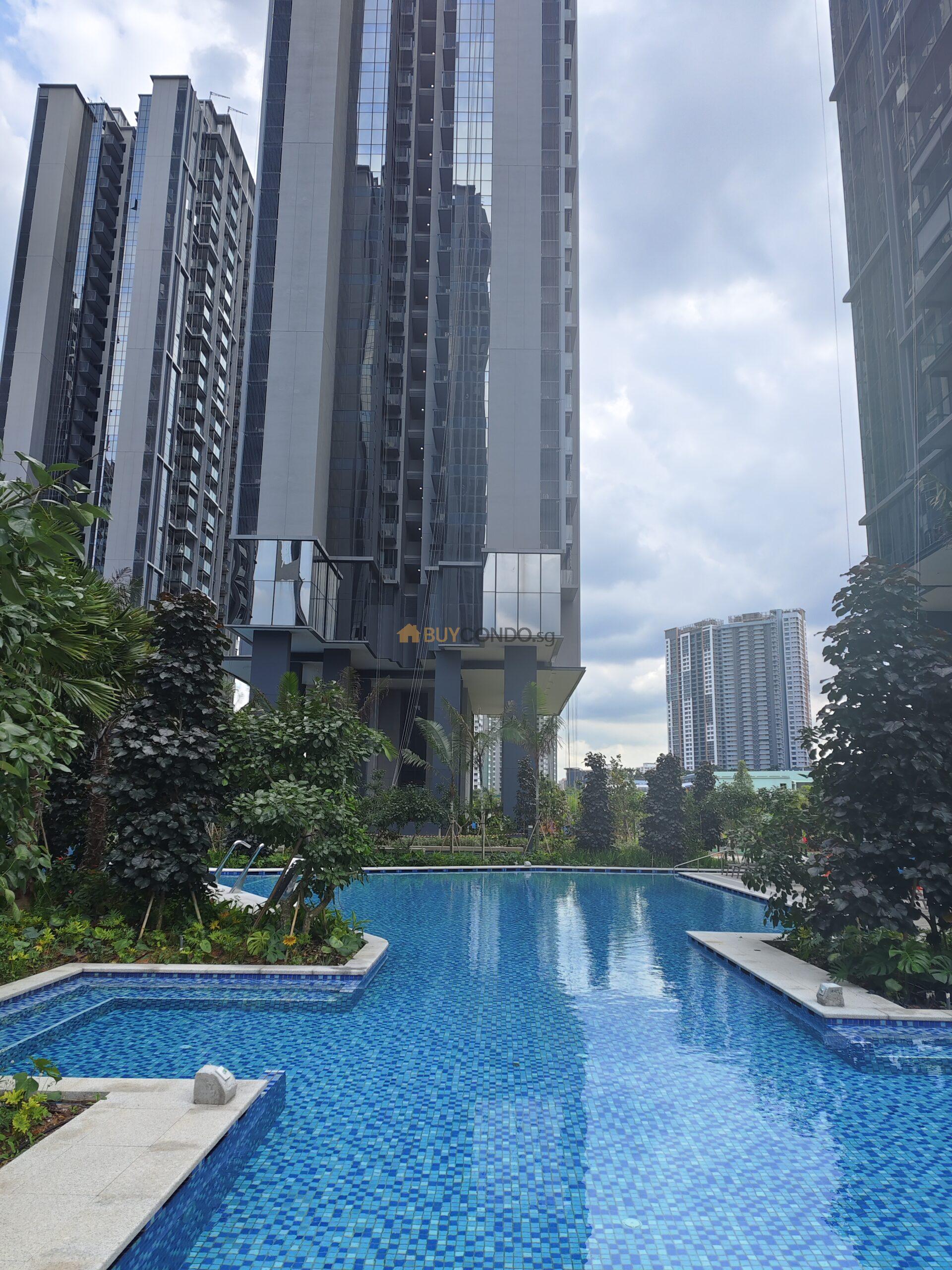
Property Types and Benefits
Joint tenancy is often favored by spouses and family members who want a seamless transfer of ownership. It ensures that the property passes smoothly to the surviving joint tenants, avoiding the need for lengthy legal processes. Tenancy in common, on the other hand, may be more suitable for unrelated parties or individuals who want to invest in a property together. It allows for flexible division of shares and the ability to freely dispose of those shares.
It’s important to note that the choice between joint tenancy and tenancy in common depends on your specific circumstances and goals. Consider factors such as the desired level of ownership, the need for seamless transfer of ownership, and the ability to freely dispose of shares. Seeking professional advice can help you make an informed decision that aligns with your needs and objectives.
Conclusion
Well, now you have a solid understanding of joint tenancy and tenancy in common, and the different aspects of property ownership in Singapore. These two forms of co-ownership offer unique rights and considerations that can greatly impact your estate planning and HDB property ownership.
For those looking for equal ownership and a seamless transfer of ownership, joint tenancy with its right of survivorship is the way to go. It’s especially beneficial for spouses and ensures that the property automatically transfers to the surviving owners when one joint tenant passes away.
On the other hand, if you prefer more flexibility and the ability to freely dispose of your shares, tenancy in common allows for separate shares and individual ownership. This form of co-ownership is suitable for unrelated parties or individuals who want to invest in property together.
Remember, when it comes to property ownership, it’s crucial to understand the differences between joint tenancy and tenancy in common. Seek legal advice to receive specific guidance tailored to your unique circumstances. Whether you’re considering joint tenancy or tenancy in common, make informed decisions about property ownership and estate planning in Singapore.
FAQ
What is the difference between joint tenancy and tenancy in common?
Joint tenancy involves equal ownership rights and the right of survivorship, where the property automatically transfers to the surviving owners upon the death of a joint tenant. Tenancy in common allows for separate shares in the property and does not have the right of survivorship.
How does tenancy in common work for dividing shares in a property?
Tenancy in common allows each co-owner to have an ‘undivided share’ in the property, with the ability to will their share to beneficiaries. The shares can be divided based on contributions and the specified ownership percentages in the title deed.
How does joint tenancy work with no specific shares and the right of survivorship?
In joint tenancy, all co-owners collectively own the entire property with no specific shares. If one joint tenant passes away, their share automatically transfers to the remaining joint tenants through the right of survivorship.
What are the pros and cons of tenancy in common and joint tenancy?
Tenancy in common provides flexibility, allowing for shared ownership of high-value properties and the transfer of shares to beneficiaries upon death. Joint tenancy is advantageous for HDB owners, simplifying ownership transfer without referring to a will or Intestate Succession Act. It also avoids estate duty and simplifies estate planning for those in spousal relationships. However, joint tenancy may limit flexibility and control over individual ownership shares.
How does joint tenancy work for HDB property ownership?
Joint tenancy is a common form of property ownership for HDB flats in Singapore. All joint tenants have equal ownership rights and the right of survivorship. If one joint tenant passes away, their share automatically transfers to the surviving joint tenants. To apply for joint tenancy for an HDB property, all co-owners must be Singapore Citizens, and the application process involves filling out forms and providing supporting documents.
What are the main differences between joint tenancy and tenancy in common?
Joint tenancy involves equal ownership and the right of survivorship, suitable for spouses and seamless ownership transfer. Tenancy in common allows for separate shares and more flexibility, making it suitable for unrelated parties or individuals investing in property together.
The post Joint Tenancy vs Tenancy in Common appeared first on Wing Tai Holdings Singapore.
]]>The post Inheriting an HDB Property in Singapore: What Taxes Involved appeared first on Wing Tai Holdings Singapore.
]]>This article provides an overview of the tax implications and considerations when inheriting an HDB property in Singapore.
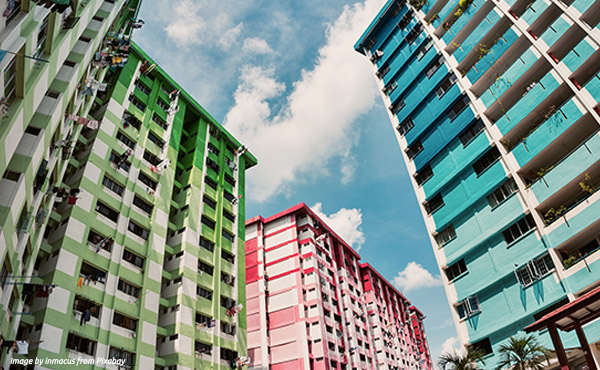
Overview of Inheriting HDB Property in Singapore
In Singapore, the process of inheriting a Housing Development Board (HDB) property involves various legal and financial considerations. These include understanding the tax implications, potential maintenance fees, property taxes, and potential restrictions due to existing property ownership. Further, the inheritance may also impact future property ownership and related costs.
Case Study: Inheriting a Property with Siblings

Inheriting a property with siblings can introduce additional complexities, particularly concerning potential stamp duty issues when transferring shares of the property. For instance, if a property is inherited equally by three siblings and one of them wants to transfer their share to another sibling, this transfer may attract stamp duty.
This case study highlights the importance of proper estate planning, especially when multiple beneficiaries are involved. By setting clear terms regarding the division and management of the property in the will, potential disputes and legal complications can be minimized.
Background on Inheritance Tax in Singapore
In Singapore, the abolishment of inheritance tax in 2008 has significantly simplified the process of inheriting properties, including HDB flats. Beneficiaries no longer have to worry about this tax, which has removed a considerable burden. This tax reform has been a significant relief for many Singaporeans, as it allows them to inherit properties without the additional financial burden of inheritance tax.
However, it’s essential to understand that the cessation of inheritance tax doesn’t imply that there are no other financial implications. Other costs such as maintenance fees, property taxes, and potential stamp duties may still apply. These costs will depend largely on the type of property, its location, and whether the beneficiary decides to keep or sell the property.
Stamp Duty Implications
One potential cost associated with inheriting a property in Singapore is stamp duty. Generally, beneficiaries do not need to pay stamp duty when inheriting a residential property. For instance, if a person inherits an HDB flat from a deceased parent, they would typically not be required to pay stamp duty on this transaction.
However, certain exceptions exist to this rule. These exceptions can lead to stamp duties being applicable under specific circumstances. For instance, if the beneficiary decides to sell the inherited property within three years of receiving it, they may need to pay Seller’s Stamp Duty (SSD). Similarly, if the beneficiary decides to purchase a new property after inheriting one, they may also need to pay stamp duty as well as ABSD, depending on the timing of the purchase and the type of property bought.
Maintenance Fees and Property Tax
Upon inheriting a property, beneficiaries are required to take over the responsibility of maintenance fees and property tax. For instance, if a person inherits a condo, they will need to cater to the regular maintenance fees for the upkeep of the common areas and facilities. These fees can sometimes be quite substantial, especially for private condos that offer a wide range of facilities.
Furthermore, property tax is another financial obligation that beneficiaries need to consider. This annual tax is imposed on all property owners in Singapore, regardless of whether the property was bought or inherited. The amount of property tax depends on the annual value of the property, which is determined by the potential rental income that the property can generate.
Mortgage Considerations
When inheriting a property with an outstanding mortgage, several considerations come into play. Legally, beneficiaries are not liable for the mortgage if the deceased was the sole borrower. This means that if the original property owner had taken out a mortgage loan on their own, the beneficiaries would not be required to pay off this loan.
However, if there is an outstanding mortgage on the inherited property, the Total Debt Servicing Ratio (TDSR) assessment will come into play. This assessment is conducted by the bank and takes into account the beneficiary’s income and other financial obligations to determine whether they are financially capable of servicing the mortgage. If the beneficiary fails this assessment, they may be unable to inherit the property, highlighting the importance of financial planning when dealing with property inheritance.
Restrictions and Eligibility Criteria
Inheriting an HDB flat in Singapore comes with certain restrictions and eligibility criteria. HDB rules may restrict beneficiaries from keeping an inherited HDB flat if they already own one. For instance, if a person already owns an HDB flat and then inherits another one, they may be required to sell off one of the flats within a specified period.
Similarly, restrictions also apply if a beneficiary owns a private property and inherits an HDB flat. This rule is in line with HDB’s regulations that prohibit the simultaneous ownership of an HDB flat and a private property within the Minimum Occupation Period (MOP). In such scenarios, the beneficiary may need to sell one of the properties to comply with HDB’s rules.
Impact on Future Property Ownership
Inheriting a property can impact future property ownership and potentially result in additional stamp duties or restrictions on buying new properties. For instance, if a person inherits an HDB flat, this will count towards the total number of properties they own. If they then decide to buy another residential property, they may be subject to Additional Buyer’s Stamp Duty (ABSD), which can add a significant cost to their property purchase.
Additionally, the inherited property may affect the beneficiary’s eligibility to purchase certain types of properties. For example, if a Singaporean inherits a private residential property, they must fulfil a five-year Minimum Occupation Period (MOP) before they are eligible to purchase an HDB flat.
Legal and Financial Considerations
There are several hidden costs and financial considerations to be aware of when inheriting a property. For example, if the inherited property is a condominium, the beneficiary will be responsible for paying monthly maintenance fees, which could be quite substantial depending on the facilities and amenities provided by the condominium.
Furthermore, it’s also critical to consider potential legal issues that may arise during the inheritance process. For instance, if any disputes arise among beneficiaries regarding the division of the property, legal fees may be incurred to resolve these issues. As such, it’s advisable for beneficiaries to have open discussions with their loved ones and seek legal advice if necessary to ensure a smooth inheritance process.
Conclusion
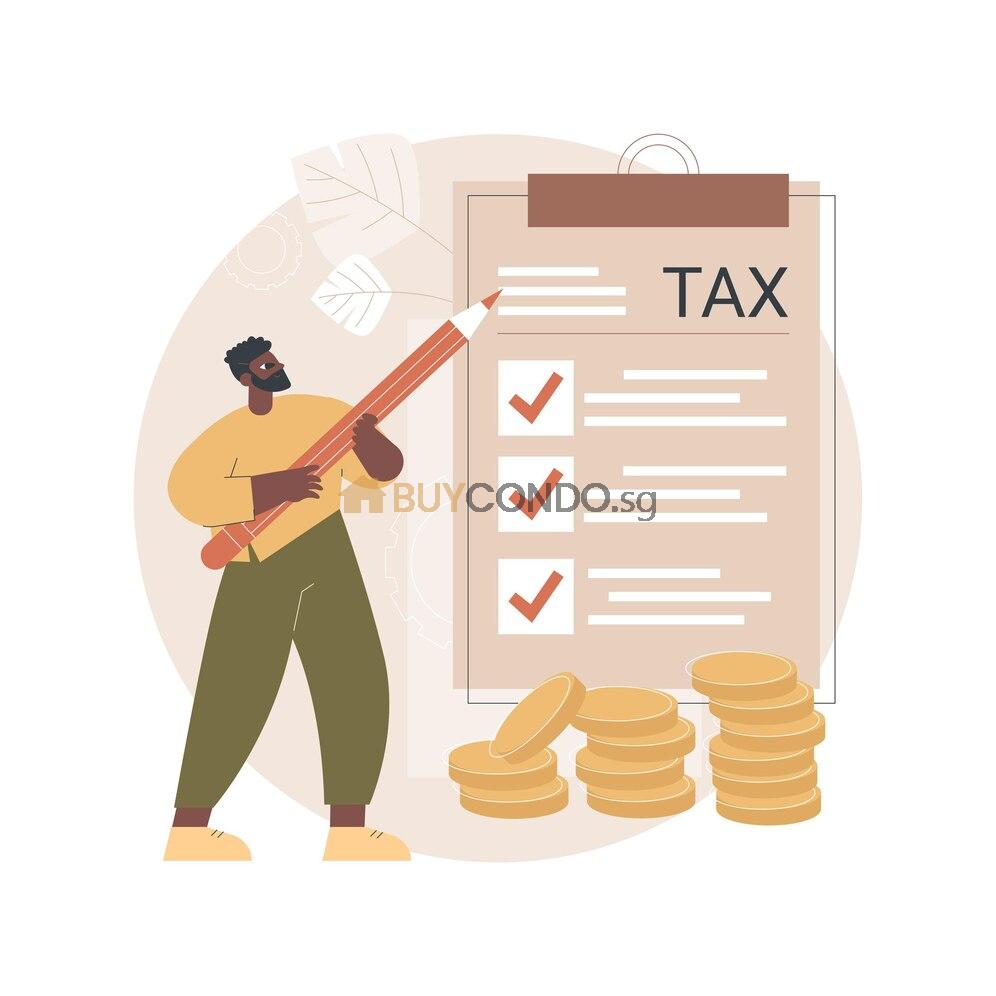
Inheriting an HDB property in Singapore involves various tax implications and considerations. Potential beneficiaries must be aware of these issues, which include the absence of inheritance tax, potential stamp duties, maintenance fees, and property taxes. Additionally, beneficiaries should also consider how the inherited property might affect their future property ownership and potential restrictions on keeping the inherited property. Lastly, seeking professional advice to navigate the complex legal and financial landscape surrounding property inheritance is always advisable.
The post Inheriting an HDB Property in Singapore: What Taxes Involved appeared first on Wing Tai Holdings Singapore.
]]>The post Maximizing Your Sales Proceeds After Selling Your Home appeared first on Wing Tai Holdings Singapore.
]]>Key Takeaways:
- Check the median price for your flat type and location to set a competitive asking price.
- Research asking prices and competition on property portals to gauge market conditions.
- Consider extending the time frame for selling to maximize gains in a competitive market.
- Weigh the pros and cons of DIY selling versus working with a property agent.
IHDB resale flat market in Singapore has been characterized by some unique trends that sellers should be aware of in order to optimize their sales proceeds. One notable trend is the increase in resale flat prices after several years of decline. According to the latest data, this uptick started in January 2020 and has continued since then.
Transaction volumes in the HDB resale flat market have also been consistently high, indicating strong demand from buyers. This is a positive sign for sellers as it suggests there are potential buyers actively searching for housing options. However, it’s important to note that with a record number of resale flats entering the market, there is potential competition for sellers.
To maximize your sales proceeds, it is crucial to understand these market dynamics. By keeping track of HDB resale flat prices, transaction volumes, and potential competition, you can make informed decisions and strategic moves when selling your home.
Current Market Snapshot:
| Market Indicator | Description |
|---|---|
| HDB Resale Flat Prices | Experiencing an upward trend since January 2020 after several years of decline. |
| Transaction Volumes | Volume and Prices see signs of weakening. |
| Potential Competition | A record number of resale flats entering the market, leading to potential competition for sellers. |
Having a clear understanding of the unique situation will enable you to set realistic expectations, strategize your pricing, and position your property effectively in the market. By staying informed and adapting to the current trends, you can maximize your sales proceeds and achieve your financial goals.
“Understanding the market dynamics and being proactive can make a significant difference in maximizing your sales proceeds in the current HDB resale flat market.”
Checking the Median Price for Your Flat Type and Location
Before setting your asking price, it is crucial to check the median price for your flat type and location. The HDB provides quarterly median resale flat prices, which can give you a benchmark to determine the value of your property. By having an accurate understanding of the market value, you can set a competitive asking price that attracts potential buyers.
Knowing the median price for your flat type and location allows you to position your property in the market. If your asking price is significantly higher than the median price, it may deter potential buyers. On the other hand, pricing too low may lead to a loss in potential profits. By finding the right balance, you can maximize your sales proceeds while ensuring that your property remains attractive to buyers.
To illustrate the importance of checking the median price, let’s take a look at the table below:
| Type of Flat | Location | Median Price (Q4 2023) |
|---|---|---|
| 3-room | Tampines | $450,000 |
| 4-room | Jurong West | $550,000 |
| 5-room | Bishan | $850,000 |
Source: https://www.99.co/singapore/hdb-resale-price
As we can see from the table, the median prices vary based on the flat type and location. By comparing these prices to your own flat, you can gauge whether your asking price aligns with market expectations. It’s important to note that the median prices may change over time, so it is recommended to regularly check for updates before finalizing your asking price.
Looking Up Asking Prices and Competition on Property Portals
When selling your home, it’s important to gather information about current asking prices and the level of competition in your area. One effective way to do this is by exploring property portals, which provide valuable insights into the market. While the listed prices on these portals may not always reflect the actual selling prices, they can give you a general idea of the price range in your locality.
By browsing through property portals, you can also assess the number of listings in your area. This can help you gauge the level of competition you may face as a seller. If there’s a high number of listings, it might indicate a more saturated market, which could potentially affect your own selling strategy.
Keep in mind that property portals can be a great source of information, but it’s essential to verify the data and cross-reference it with other sources. Additionally, consulting with a real estate professional can provide you with expert insights and guidance when it comes to pricing and competition.
Example of Asking Prices on Property Portals
| Property | Location | Asking Price (SGD) |
|---|---|---|
| 3-room HDB flat | Tampines | 470,000 |
| 4-room HDB flat | Jurong West | 580,000 |
| 5-room HDB flat | Bishan | 900,000 |
The table above provides an example of asking prices for different types of HDB flats in various locations. It can give you an idea of the price range for similar properties. However, it’s important to note that these prices are for reference purposes only and may vary based on factors such as the flat’s condition, lease remaining, and other market influences.
By leveraging the information available on property portals and combining it with your knowledge of the local market, you can gain valuable insights to help you make informed decisions about pricing and competition when selling your home.
Determining if You Need to Extend the Time Frame
When selling your home, timing can play a crucial role in maximizing your sales proceeds. It’s important to assess the current market conditions and consider whether extending the time frame could potentially enhance your gains. By strategically waiting for the right moment, you can take advantage of buyer competition and potentially secure higher offers for your property.
Extending the time frame can be particularly advantageous when there is a high level of buyer competition in the market. In such situations, buyers may be more willing to offer higher prices to secure a desirable property. By patiently waiting for the right buyer to emerge, you can increase your chances of receiving better offers and ultimately maximize your sales proceeds.
However, it’s important to note that extending the time frame comes with its own considerations. Market conditions can fluctuate, and it’s crucial to stay informed about any potential shifts that could impact your selling strategy. Additionally, prolonging the selling process may require careful financial planning to ensure that you can sustain the costs of maintaining the property while awaiting a favorable offer.
In summary, extending the time frame for selling your home can be a strategic move to maximize your sales proceeds. By carefully assessing buyer competition and staying attuned to market dynamics, you can determine whether waiting for the right timing will lead to higher offers and increased gains.
Weighing the Pros and Cons of DIY Selling
When it comes to selling your HDB flat, one option to consider is DIY selling, which means selling your property without engaging a property agent. This approach can be appealing as it allows you to save on commission fees, which typically range from 1-2% of the property price. However, before making a decision, it is important to weigh the pros and cons of DIY selling.
Pros of DIY Selling:
- You can save on commission fees, potentially maximizing your sales proceeds.
- You have full control over the selling process, from setting the price to negotiating with buyers.
- You can personalize the marketing strategy to showcase the unique features of your property.
Cons of DIY Selling:
- DIY selling requires a certain level of knowledge and skills in marketing, negotiation, and legal aspects of the property transaction.
- You may need to invest time and effort in researching the market, pricing your property accurately, and advertising it effectively.
- Engaging a property agent can provide access to a wider network of potential buyers and professional expertise in navigating the selling process.
Ultimately, the decision to pursue DIY selling or work with a property agent depends on your individual circumstances and preferences. If you are confident in your ability to handle the selling process effectively and are willing to invest time and effort, DIY selling can be a viable option to save on commission fees. However, if you prefer the convenience, expertise, and wider reach that a property agent can offer, it may be worth considering their services.
Expert Tip
“Before opting for DIY selling, assess your own skills and experience in the real estate market. If you have previous experience or knowledge in selling properties, you may be more equipped to handle the challenges that may arise. However, if you are unsure or unfamiliar with the process, seeking professional assistance from a property agent can help you navigate the complexities of the real estate market and potentially achieve a higher selling price.” – Real Estate Expert
Alternatively, Negotiating with an Agent

Working with a property agent can provide valuable expertise and assistance throughout the selling process. While the standard commission rate is typically around 2% of the property price, it is possible to seller to also propose a higher commission rate with the agent if they can secure a higher selling price for your flat. This arrangement can be beneficial for both parties involved.
Offering a higher commission incentivizes the agent to work diligently to maximize your sales proceeds. They will be motivated to negotiate the best possible deal for you, which can result in a higher selling price and ultimately increase your profits. Additionally, agents often have access to a wide network of potential buyers and industry insights, which can further enhance your selling experience.
When negotiating the commission rate, it is important to consider the agent’s track record, experience in your area, and their ability to deliver results. This will ensure that you are partnering with a competent professional who is dedicated to achieving your selling goals. Open and transparent communication is key during the negotiation process to ensure that both parties are aligned on expectations and commitments.
Benefits of paying the standard market Commission Rate:
- Increased motivation: The minimum of standard commission rate can incentivize the agent to work harder to secure a higher selling price for your HDB flat.
- Access to a wider network: Property agents often have an extensive network of potential buyers, which can increase the visibility of your property.
- Industry expertise: Agents have valuable insights into market trends, pricing strategies, and buyer preferences, which can help you make informed decisions.
- Professional guidance: Working with an agent can provide guidance and support throughout the selling process, ensuring a smooth and successful transaction.
Remember to clearly discuss and outline the terms and conditions of the agreement before finalizing any negotiations with the property agent. By establishing a mutually beneficial partnership, you can maximize your sales proceeds and achieve a successful sale of your HDB flat.
Table: Pros and Cons of Negotiating a Higher Commission Rate
| Pros | Cons |
|---|---|
| Increased motivation for the agent to secure a higher selling price | Higher commission fees |
| Access to a wider network of potential buyers | Potential disagreement or misalignment in expectations |
| Benefit from the agent’s industry expertise and insights | Dependency on the agent’s availability and performance |
| Guidance and support throughout the selling process | Unequal distribution of responsibilities and workload |
Being Selective with Maintenance
When selling your home, it’s important to make strategic decisions about maintenance and renovations to improve the property value. While some repairs and upgrades can increase the appeal of your home, it’s crucial to be selective and focus on those that will have the greatest impact on potential buyers.
Firstly, prioritize essential fixes and visible issues that can negatively affect the first impression of your home. This includes repairing any leaks or electrical problems, addressing peeling paint or damaged flooring, and fixing any broken fixtures or appliances. By ensuring that your home is in good working order, you create a positive impression and instill confidence in potential buyers.
When it comes to renovations, consider those that are most likely to add value to your property. This could include upgrading the kitchen or bathroom, which are often key selling points for buyers. However, it’s important to strike a balance and avoid overspending on renovations that may not significantly impact the selling price. Buyers often prefer to personalize their own homes, so focus on improvements that will have broad appeal and provide a good return on investment.
Remember, the goal is to optimize your sales proceeds, so be strategic in your maintenance decisions. By ensuring that your home is well-maintained and making targeted renovations, you can increase its value and attract potential buyers who are willing to pay a premium for a move-in ready property.
Table: Renovations and Their Potential Impact on Property Value
| Renovation | Potential Impact on Property Value |
|---|---|
| Upgraded kitchen | Increased appeal, higher selling price |
| Renovated bathroom | Improved buyer perception, higher selling price |
| Landscaping and outdoor improvements | Enhanced curb appeal, increased property value |
| New flooring | Updated look, improved buyer interest |
| Fresh paint | Improved aesthetics, positive first impression |
| Solar panels or energy-efficient upgrades | Reduced energy costs, increased appeal for eco-conscious buyers |
Source: Author’s own research and analysis
Assessing Your Financial Situation
When it comes to selling your home and maximizing your sales proceeds, it’s important to take a comprehensive look at your financial situation. This assessment should consider factors such as retirement planning, income sources, and the overall goals you have set for your future. By evaluating these aspects, you can make informed decisions that align with your long-term financial objectives.
Retirement planning plays a crucial role in determining the best course of action for your home sale. Consider your retirement goals, timeline, and risk tolerance. Are you planning to downsize or relocate? Will the proceeds from the sale contribute significantly to your retirement savings? These questions will help guide your decisions and ensure that selling your home supports your retirement plans.
Another important aspect to consider is your income sources. Evaluate the stability and reliability of your current sources of income, such as pensions, investments, or rental properties. Understanding your income streams will help you assess how the proceeds from selling your home can contribute to your overall financial well-being.
Throughout this financial assessment, it’s essential to seek professional advice from a financial planner or advisor. They can provide personalized guidance based on your specific circumstances and help you navigate the complexities of maximizing your sales proceeds while considering your long-term financial goals.
Conclusion : Maximizing Your Sales Proceeds After Selling Your Home
After carefully considering various factors, maximizing your sales proceeds after selling your home is within reach. By understanding market trends, pricing strategies, and your own financial situation, you can make informed decisions that maximize your profits. Whether you choose to sell on your own or work with a property agent, staying informed and making strategic choices is key to achieving your financial goals.
When selling your home, it is crucial to plan ahead and be aware of the unique dynamics of Singapore’s real estate market. By checking the median price for your flat type and location, you can set a competitive asking price that attracts potential buyers. Additionally, researching asking prices and competition on property portals can give you valuable insights into the current market and help you gauge the level of competition you may face.
Consider extending the time frame if necessary, especially during periods of high buyer competition or unfavorable market conditions. Waiting for the right timing can increase your chances of receiving better offers and potentially higher prices for your property. Whether you decide to engage a property agent or opt for DIY selling, weigh the pros and cons carefully. Engaging a property agent may allow for negotiation of a higher selling price, which can ultimately result in more money from the sale.
Lastly, be selective with maintenance and renovations. Focus on essential fixes and visible issues that can increase the appeal and value of your property. Assess your financial situation and align your long-term financial objectives before making any decisions. By following these strategies and considering all relevant factors, you can maximize your sales proceeds and achieve your financial goals when selling your home.
FAQ
What factors should I consider when determining the asking price for my HDB flat?
It is crucial to check the median price for your flat type and location provided by the HDB to set a competitive asking price.
How can I gain insights into the current market and competition in my area?
It is advisable to look up asking prices and competitors on property portals to get an idea of the price range in your locality and gauge the level of competition you may face as a seller.
Is it beneficial to extend the time frame for selling my home?
Sometimes, extending the time frame can be beneficial, especially when there is high buyer competition or unfavorable market conditions. Waiting for the right timing can increase your chances of receiving better offers and potentially higher prices for your property.
What are the pros and cons of DIY selling?
DIY selling can help you save on commission fees, but it requires knowledge and skills in marketing and negotiating. It is important to weigh the pros and cons and assess your ability to handle the selling process effectively on your own.
Can I negotiate the commission rate with a property agent?
Yes, it is possible to negotiate the commission rate. While the standard rate is around 2%, you can discuss with the agent the possibility of a higher commission rate if they can fetch a higher selling price for your flat.
How should I prioritize maintenance and renovations when preparing my home for sale?
Focus on essential fixes and visible issues to increase your property’s appeal and value. Avoid overspending on renovations that may not significantly impact the selling price, as buyers often prefer to customize their own homes.
What should I consider when assessing my financial situation before selling my home?
Assess your retirement goals, timeline, risk tolerance, and other sources of income. Having a clear understanding of your financial position will help you make informed decisions that align with your long-term financial objectives.
How can I maximize my sales proceeds after selling my home?
By considering market trends, pricing strategies, and your own financial situation, you can increase your profits and achieve your financial goals. Stay informed and make informed choices to optimize the returns from your home sale.
The post Maximizing Your Sales Proceeds After Selling Your Home appeared first on Wing Tai Holdings Singapore.
]]>The post Should I Keep or Sell My HDB? Exploring Options While Renting a Condo appeared first on Wing Tai Holdings Singapore.
]]>Should I Keep or Sell My HDB? Exploring Options While Renting a Condo? Deciding whether to keep or sell your HDB (Housing Development Board) while renting a condo can be a challenging decision. There are several factors to consider, including the resale value of your HDB, the potential rental yield, and the comparison between HDB and condo living. This article will provide insights and analysis to help you make an informed choice.
Key Takeaways:
- Consider the resale value of your HDB when deciding whether to keep or sell.
- Explore the potential rental yield of your HDB versus the costs and benefits of renting a condo.
- Analyze the differences between HDB and condo living to determine which option aligns with your housing preferences.
- Take into account the current property market analysis and trends when making your decision.
- Seek financial advice to understand the long-term implications and potential benefits of owning versus renting property.
Reach Out to WING TAI HOLDINGS Team for a Non Obligation Discussion. WA for an appointment at +6594507545.
Can I Rent Out My HDB and Stay in a Condo?
As a homeowner in Singapore, you may be wondering if it’s possible to rent out your HDB flat while staying in a condo. The answer is yes, but there are certain regulations and conditions to be aware of. Firstly, your HDB flat must fulfill a minimum occupancy period (MOP) of five years before you can consider renting it out. This means that you need to stay in your HDB flat for at least five years before you can explore the option of renting it out while staying in a condo.
In addition to the minimum occupancy period, the number of occupants and citizenship status can also impact the rental possibilities. Renting out the entire HDB flat is only permissible for Singapore citizens, with certain quotas for renting to non-citizens. This is to ensure that there is a balance between providing housing opportunities for citizens and maintaining a stable housing market.
It’s important to note that if you are a Singapore citizen and decide to keep your HDB flat while purchasing a private condominium, you will be subject to additional buyer’s stamp duty (ABSD). The ABSD is a tax imposed on Singapore citizens who own more than one residential property. Therefore, it’s essential to consider the financial implications and regulatory requirements before making a decision on renting out your HDB while staying in a condo.
Rental Regulations for HDB and Condo
| Rental Regulations | HDB | Condo |
|---|---|---|
| Minimum Occupancy Period (MOP) | 5 years | N/A |
| Rental Possibilities | Singapore citizens and certain quotas for non-citizens | Singapore citizens and non-citizens |
| Additional Buyer’s Stamp Duty (ABSD) | Not applicable | Applicable for Singapore citizens owning more than one residential property |
As you navigate the decision of renting out your HDB and staying in a condo, it’s advisable to consult with professionals who can provide guidance on the Singapore regulations and offer insights specific to your unique situation. Reach out to WING TAI HOLDINGS Team for a non-obligation discussion and schedule an appointment at +6594507545.
Advantages and Disadvantages of Renting Out HDB and Staying in a Condo
When it comes to deciding whether to rent out your HDB and stay in a condo, there are several advantages and disadvantages to consider. Renting out your HDB can provide financial gain through rental income and potential tax benefits. It allows you to leverage your property as an asset for appreciation and offers flexibility in your living arrangements. Additionally, retaining both properties gives you the opportunity to diversify your investment portfolio and enjoy an enhanced lifestyle with access to amenities and facilities that condos often offer.
However, there are also financial risks and challenges associated with renting out your HDB and staying in a condo. High initial costs, such as the additional buyer’s stamp duty (ABSD), can impact your cash flow and overall affordability. Managing the maintenance and management of two properties can be demanding and time-consuming. It’s essential to comply with rental regulations and ensure regulatory compliance to avoid potential penalties. Market volatility can also affect the rental demand and rental income you derive from your HDB. Lastly, tenant-related issues, such as non-payment of rent or property damage, can add additional stress and complications to the rental process.
In summary, renting out your HDB while staying in a condo offers potential financial gain, flexibility, and investment diversification. However, it also presents financial risks, maintenance and management challenges, regulatory compliance obligations, market volatility, and tenant-related issues. Each individual’s situation is unique, and it’s essential to carefully assess your personal circumstances and seek professional advice to make an informed decision that aligns with your long-term goals and objectives.
Table: Advantages and Disadvantages of Renting Out HDB and Staying in a Condo
| Advantages | Disadvantages |
|---|---|
| Financial gain through rental income | Top up a bit more and enjoy condo facilities |
| Tax benefits | Dual responsibilities for maintenance and management |
| High Yield | Regulatory compliance and potential penalties |
| Flexibility in living arrangements | Market volatility |
| Investment diversification | Tenant-related issues |
| Enhanced lifestyle with access to amenities |
Reach out to the WING TAI HOLDINGS Team for a non-obligation discussion about your specific situation. Book an appointment via WhatsApp at +6594507545.
Options for Upgrading from HDB to Condo
When considering the upgrade from an HDB to a condo, there are different options to explore. Each option has its own pros and cons, and it’s important to carefully evaluate them based on your specific circumstances and goals.
One option is to sell your HDB first before buying a condo. This allows you to fully utilize your CPF (Central Provident Fund) savings and take full loans for the condo purchase. It provides you with more financial flexibility and may result in a lower cash outlay. However, it also means you’ll need to secure a temporary place to stay during the transition period.
Alternatively, you can choose to buy the condo first and then sell your HDB. This option provides you with the peace of mind of having a secured place to stay while waiting for the completion of the condo. It also allows you to plan and carry out any necessary renovations before moving in. However, this option may pose challenges in terms of cash flow, as you’ll need to manage the financial commitment of both properties simultaneously.
| Option | Pros | Cons |
|---|---|---|
| Sell HDB First | – Fully utilize CPF savings – Lower cash outlay |
– Temporary place to stay – May need to rent during transition |
| Wing Tai Holdings First | – Secured place to stay – Renovation planning |
– Simultaneous financial commitment – Cash flow challenges |
Another option is the hybrid method, where you buy and sell concurrently. This approach requires careful timeline planning and coordination with real estate agents to ensure a seamless transition. It allows for a smooth handover from your HDB to the new condo without the need for temporary accommodations. However, it can be more complex and requires meticulous management of the buying and selling processes.
Regardless of the option you choose, it’s essential to consider factors such as cash flow, loan limitations, CPF utilization, and the potential need for renting during the transition period. Consulting with a financial advisor or property expert can provide valuable guidance tailored to your specific situation. They can help you assess the advantages and disadvantages of each option and make an informed decision that aligns with your goals and financial capacity.
Assessing the Value of Your HDB
When considering whether to keep or sell your HDB while renting a condo, it is crucial to assess the value of your HDB. Several factors can impact the value, including location, market trends, and amenities. Staying updated on the latest information related to million dollar HDBs, and the concept of Cash Over Valuation (COV) can provide valuable insights into the potential value of your HDB.
Understanding the value of your HDB is essential for making an informed decision. The resale value of your HDB can influence your financial commitments and future property assessment. By unlocking the value of your HDB, you can determine its potential for appreciation and assess whether it aligns with your long-term goals and financial aspirations.
| Factors Influencing HDB Value | Impact |
|---|---|
| Location | The desirability of the neighborhood and proximity to amenities can increase the value of your HDB. |
| Market Trends | Understanding current market trends can help you gauge the potential value of your HDB in the future. |
| Amenities | The presence of nearby amenities such as schools, shopping centers, and parks can enhance the value of your HDB. |
By carefully assessing the value of your HDB, you can make an informed decision about its future. Whether you choose to keep or sell, understanding the financial implications and property assessment is crucial. Reach out to the WING TAI HOLDINGS team for a non-obligation discussion and to explore your options. Contact us today at +6594507545 to schedule an appointment.
Quote:
“Assessing the value of your HDB is an essential step in making an informed decision about whether to keep or sell. By understanding the factors that influence the value, such as location, market trends, and amenities, you can determine the potential for appreciation and align your decision with your long-term goals.”
Financial Planning for Upgrading to a Condo
When considering upgrading from an HDB to a condo, careful financial planning is essential. The transition brings various financial commitments that need to be evaluated and managed effectively to ensure a smooth upgrade process. Here’s a breakdown of the key aspects to focus on:
- Budgeting: Assess your current financial situation and determine how much you can afford to allocate towards the condo purchase. Consider your income, savings, and other financial obligations to create a realistic budget.
- Loan Options: Explore different loan options available for purchasing a condo. Compare interest rates, loan tenure, and eligibility criteria to find the best financing solution that suits your needs.
- Down Payment: Determine the down payment amount required for the condo purchase. It typically ranges from 20% to 30% of the property’s purchase price. Ensure you have sufficient funds or savings set aside for the down payment.
- Affordability: Evaluate whether the monthly mortgage payments for the condo, including interest and other expenses, are affordable within your budget. Take into account any potential changes in income or financial circumstances in the future.
- Financial Consultation: Consider seeking advice from a financial consultant or mortgage specialist who can provide guidance tailored to your specific goals and financial situation. They can help you navigate through the complexities of upgrading to a condo and make sound financial decisions.
- Future Goals: Align your property upgrade with your long-term financial goals. Consider factors such as investment potential, property appreciation, and the impact on your overall financial portfolio.
- Property Investment: Assess the potential of the condo as a property investment. Research the market trends, rental demand, and potential rental yield to make an informed decision that aligns with your investment goals.
By carefully considering your financial commitments, budgeting, loan options, down payment, affordability, and future goals, you can make a well-informed decision about upgrading from an HDB to a condo, ensuring a smooth transition and a sound financial future.
Reach out to the WING TAI HOLDINGS team for a non-obligation discussion and appointment by WhatsApp at +6594507545.
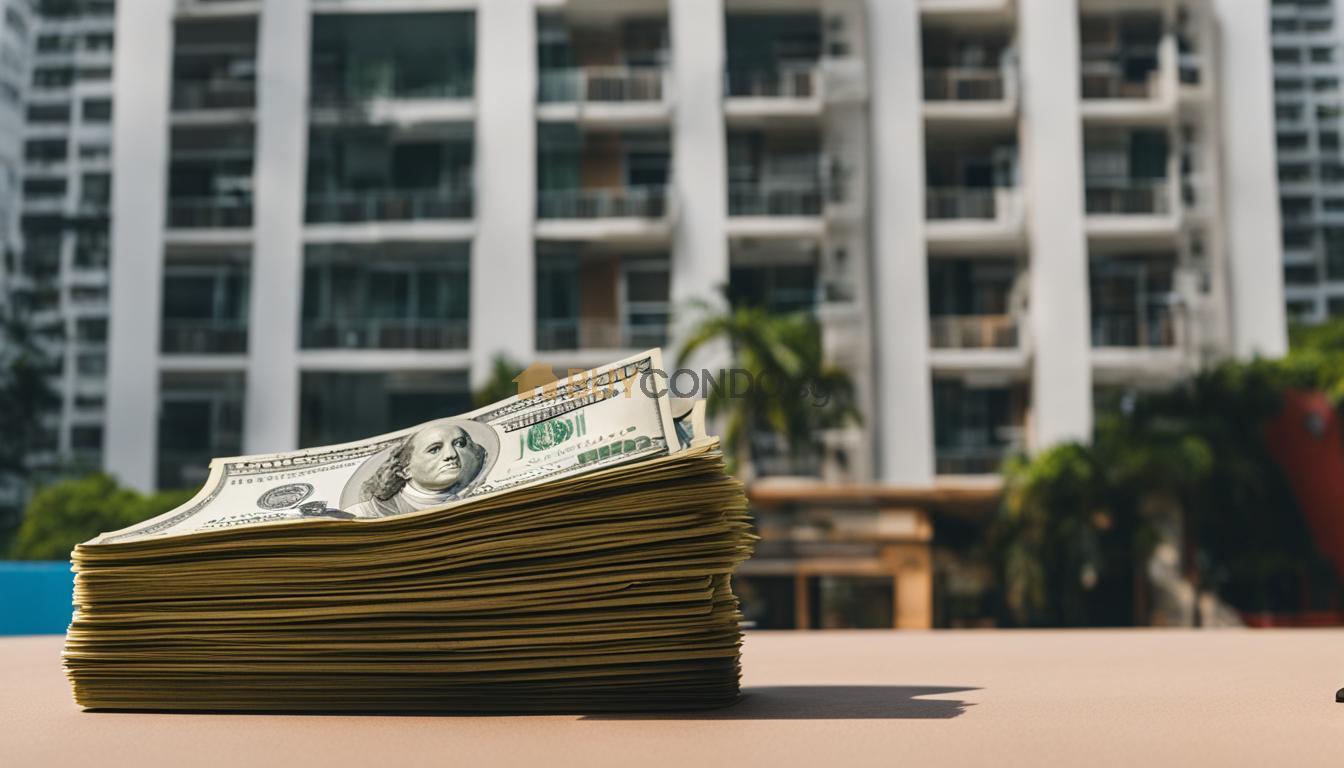
Making a Long-Term Housing Decision
When it comes to making a long-term housing decision, there are several factors to consider. First, you need to evaluate your lifestyle preferences. Do you prefer the convenience and amenities that come with staying in a condo, or do you value the community atmosphere and familiarity of your HDB? Understanding your personal preferences will help guide your decision.
Financial stability is another important aspect to consider. Assess your financial situation and determine if you have the means to own and maintain a condo. Consider the costs associated with condo ownership, such as monthly maintenance fees and property taxes. Additionally, think about the potential rental income you could generate from renting out your HDB and weigh it against the costs of owning and renting a condo.
Conducting a rental market analysis is crucial to understanding the current demand and rental rates in your area. This analysis will help you gauge the potential rental income you could earn from your HDB and determine if it aligns with your long-term financial goals. Additionally, consider the property ownership aspect. Owning a condo provides the potential for property appreciation over time, whereas renting may provide more flexibility in terms of where you live.
Table: Comparing HDB and Condo Options
| Aspect | HDB | Condo |
|---|---|---|
| Affordability | Lower upfront costs and monthly expenses | Higher upfront costs and monthly expenses |
| Ownership | Full ownership with restrictions on rental | Full ownership with potential for rental income |
| Amenities | Basic facilities within HDB estate | Luxurious amenities and facilities |
| Community | Tighter-knit community and sense of familiarity | More transient community |
| Flexibility | Less flexibility in terms of living arrangements | More flexibility in terms of changing locations |
Ultimately, your long-term goals and future planning should guide your housing decision. Consider where you see yourself in the next five to ten years and how owning or renting a condo will align with those goals. Reach out to the WING TAI HOLDINGS team for a non-obligation discussion to explore your options further. You can schedule an appointment by reaching out via WhatsApp at +6594507545.
Seek Professional Advice for Property Transitions
When it comes to making important property decisions, seeking professional advice from property experts, real estate agents, and financial advisors is crucial. These professionals have in-depth knowledge and experience in the property market, and they can provide valuable insights to help you navigate the complex process of property transitions.
Property experts can offer comprehensive property market analysis, evaluating market trends, property valuation, and rental yield analysis. They can help you understand the current market conditions and make informed decisions based on your specific goals and circumstances.
Real estate agents are well-versed in the legal implications of property transitions. They can guide you through the buying or selling process, ensuring that you understand all the tax considerations and legal requirements. They can also help you find suitable properties, negotiate deals, and handle all the necessary paperwork.
Financial advisors play a crucial role in property transitions by providing valuable financial insights and advice. They can assess your financial situation, help you create a budget, explore loan options, and determine the affordability of your desired property. They can also assist in long-term financial planning and align your property decisions with your overall financial goals.
Reach out to the WING TAI HOLDINGS team for a non-obligation discussion with property experts, real estate agents, and financial advisors. They can provide you with personalized guidance and support, ensuring that your property transitions are smooth, informed, and successful. Contact them today and take the first step towards making wise property decisions that align with your needs and aspirations. WA for an appointment at +6594507545.
Exploring the Future of Property Ownership
As the real estate industry evolves, it’s essential to stay informed about the latest property trends, housing market analysis, and real estate innovations. The future of property ownership holds exciting possibilities, with advancements in sustainable living, technology, and community-focused developments.
The Rise of Smart Homes
Technology advancements have paved the way for the rise of smart homes, which offer enhanced convenience and efficiency. From automated lighting and temperature control to integrated security systems, smart homes provide a seamless living experience. Homeowners can enjoy the benefits of remote management and energy conservation, making smart homes an attractive proposition for future property ownership.
Embracing Sustainable Living
With increasing awareness of environmental concerns, sustainable living has become a significant focus in the real estate industry. Green buildings and eco-friendly features such as solar panels and rainwater harvesting systems are increasingly prevalent. Property owners can contribute to a greener future by choosing environmentally conscious developments and reducing their carbon footprint.
Community-Focused Developments
Community living is gaining prominence as developers create integrated developments that cater to residents’ needs. These developments often feature amenities such as parks, community centers, and shared spaces that foster a sense of belonging and promote social interaction. Embracing community-focused developments can enhance the quality of life for property owners and create vibrant, inclusive neighborhoods.
| Property Trends | Housing Market Analysis | Real Estate Innovations |
|---|---|---|
| – Rising demand for sustainable and energy-efficient properties. | – Analyzing market trends and property values to make informed investment decisions. | – Incorporating cutting-edge technology in property design and construction. |
| – Shift towards flexible living spaces to accommodate remote work and lifestyle changes. | – Evaluating supply and demand dynamics in different housing segments. | – Exploring new construction methods and materials for sustainable and cost-effective building. |
| – Increasing interest in co-living and co-working spaces to foster collaboration. | – Assessing the impact of government policies and regulations on the real estate market. | – Implementing innovative property management systems for improved efficiency. |
As property ownership evolves, staying informed about these trends, market analysis, and real estate innovations is crucial. By embracing sustainable living, leveraging technology advancements, and exploring community-focused developments, property owners can make informed decisions that align with their future aspirations.
To explore the exciting possibilities of the future of property ownership, reach out to the WING TAI HOLDINGS Team for a non-obligation discussion. Contact us via WhatsApp at +6594507545 to schedule an appointment.
Conclusion
After carefully considering the financial implications, analyzing the real estate market, and exploring your housing options, it’s time to make a decision about whether to keep or sell your HDB while renting a condo. This crucial property decision involves weighing factors such as rental income, asset appreciation, financial risks, regulatory compliance, and lifestyle preferences.
To ensure you make the best decision for your unique situation, it is highly recommended to seek professional advice. Reach out to the WING TAI HOLDINGS Team for a non-obligation discussion. Their property experts can provide valuable insights into the property market, assist with property valuation, rental yield analysis, and guide you through tax considerations and legal implications.
Remember, your property decisions should align with your long-term goals and future planning. Consider the ever-changing housing market and the evolving trends and innovations in the real estate industry. By staying informed and seeking expert advice, you can navigate the complexities of property ownership and make informed choices that maximize your financial gains and enhance your lifestyle.
For a non-obligation discussion, reach out to the WING TAI HOLDINGS Team today. Schedule an appointment by contacting them on WhatsApp at +6594507545. Take control of your property decisions and secure your future in the Singapore real estate market.
FAQ – Should I Keep or Sell My HDB?
Can I rent out my HDB and stay in a condo?
Yes, it is possible to rent out your HDB flat while staying in a condo. However, there are certain conditions and regulations to be aware of. The HDB flat must fulfill a minimum occupancy period (MOP) of five years before considering renting it out. The number of occupants and citizenship status also have an impact on the rental possibilities. Additional buyer’s stamp duty (ABSD) applies if a Singapore citizen decides to keep their HDB flat and purchase a private condominium. The rental of the entire HDB flat is only permissible for Singapore citizens, with certain quotas for renting to non-citizens.
What are the advantages and disadvantages of renting out HDB and staying in a condo?
Renting out your HDB while staying in a condo offers several advantages. It can provide a steady stream of rental income and potential tax benefits. Retaining both properties allows for asset appreciation and flexibility in living arrangements. It also provides an opportunity for investment diversification and access to enhanced amenities and facilities. However, there are disadvantages to consider, such as high initial costs, dual responsibilities for maintenance, compliance with rental regulations, market fluctuations, and tenant-related issues.
What are the options for upgrading from HDB to condo?
There are different options to consider when upgrading from an HDB to a condo. Selling the HDB first allows for fully utilizing CPF and taking full loans for the condo purchase. On the other hand, buying the condo first provides peace of mind with a secured place and time for renovations. However, it comes with the challenge of cashflow and loan limitations. The hybrid method involves buying and selling concurrently, requiring careful timeline management and coordination with real estate agents. Renting during the transition period can provide more options for the next property, but it may also involve the hassle of moving house twice.
How can I assess the value of my HDB?
Assessing the value of your HDB is crucial when considering whether to keep or sell it. Factors such as location, market trends, and amenities can impact the value of your HDB. It’s important to stay updated on the latest information related to million dollar HDBs, popular HDB towns, and the concept of Cash Over Valuation (COV). Understanding the potential value of your HDB can help you make an informed decision about its future.
How should I plan financially for upgrading to a condo?
Upgrading from an HDB to a condo requires careful financial planning. It is essential to assess your financial commitments, create a budget, and explore loan options for the condo purchase. Determining the down payment and ensuring affordability are crucial considerations. Seeking financial consultation can provide guidance based on your future goals and aspirations. Additionally, it’s important to evaluate the potential of the condo as a property investment.
How do I make a long-term housing decision?
Deciding whether to keep or sell your HDB while renting a condo requires evaluating your long-term housing decision. Consider your lifestyle preferences, financial stability, and the rental market analysis. Assess the benefits of property ownership versus renting, and align your decision with long-term goals and future planning. It’s crucial to determine the affordability of both options and make a choice that aligns with your overall financial and lifestyle objectives.
Should I seek professional advice for property transitions?
Yes, seeking professional advice is recommended when considering property transitions. Property experts, real estate agents, and financial advisors can provide valuable insights based on property market analysis, property valuation, rental yield analysis, tax considerations, and legal implications. Their expertise can help you make informed decisions and maximize the benefits of your property decision-making process.
What is the future of property ownership?
Exploring the future of property ownership involves staying updated on property trends, housing market analysis, and real estate innovations. Consider the potential impact of sustainable living, technology advancements, smart homes, green buildings, and community living. Keeping abreast of the evolving landscape can help shape your property ownership decisions and ensure they align with the changing needs and preferences of the housing market.
How do I decide whether to keep or sell my HDB while renting a condo?
Deciding whether to keep or sell your HDB while renting a condo involves weighing the financial implications, analyzing the real estate market, and considering your housing options. It’s crucial to consider factors such as rental income, asset appreciation, financial risks, regulatory compliance, and lifestyle preferences. Ultimately, seeking professional advice and thoroughly evaluating your personal circumstances will help guide you towards the best decision for your unique situation.
The post Should I Keep or Sell My HDB? Exploring Options While Renting a Condo appeared first on Wing Tai Holdings Singapore.
]]>The post HDB BTO vs HDB Resale flats appeared first on Wing Tai Holdings Singapore.
]]>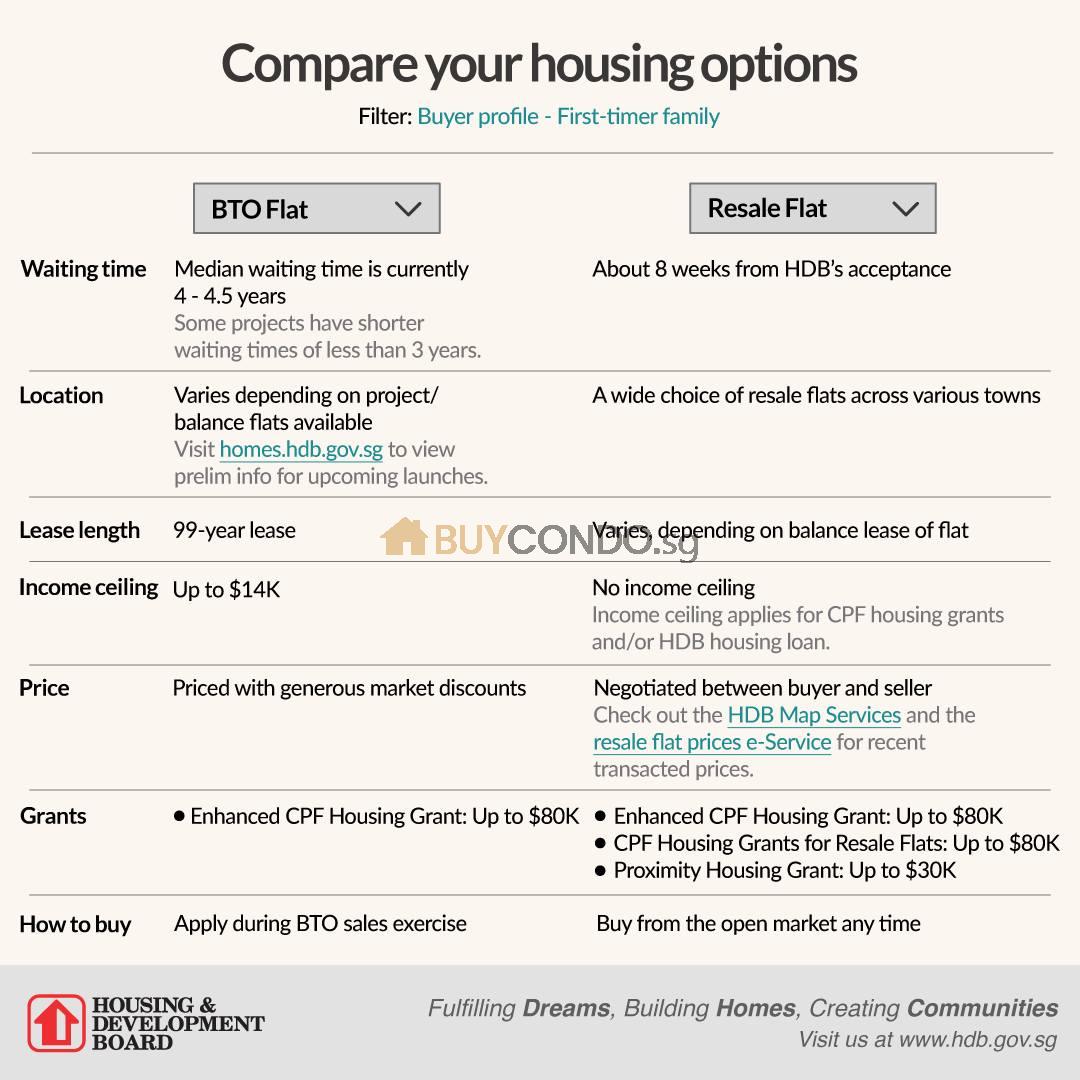
 Prefer info in a printable format? Download the HDB Cheatsheet for First-Timers here.
Prefer info in a printable format? Download the HDB Cheatsheet for First-Timers here.
The Ultimate Guide to Buying an HDB Flat for First-timers
• What are my housing options?
• What are the steps involved in buying an HDB flat?
What are my housing options?
Should you buy an HDB BTO or resale flat? Here’s an overview of the differences.
Flat from HDB (BTO, SBF, Open Booking) Resale flat
Waiting time BTO flats
Median waiting time is currently 4-4.5 years; HDB aims to bring waiting times down to 3-4 years by 2024.
 Some projects have shorter waiting times of less than three years.
Some projects have shorter waiting times of less than three years.
SBF/ Open booking of flats
Completed flat: About four months after booking a flat
Flats under construction: When flats are completed About eight weeks from HDB’s acceptance
Location Varies depending on projects/ balance flats available. Check out our sales launch page for the latest info on upcoming launches. A wide choice of resale flats across various towns
Lease length BTO flats
99-year lease
SBF/ Open booking of flats
Varies, depending on the balance lease of the flat
Income ceiling Up to $14,000 for families
Up to $7,000 for singles
You may apply for Deferred Income Assessment when you book your flat if eligible—no income ceiling. The income ceiling applies to CPF housing grants and/or HDB housing loans.
Price Priced with generous market discounts Negotiated between buyer and seller.
 Check out HDB Map Services and the resale flat prices e-Service for recent transacted prices.
Check out HDB Map Services and the resale flat prices e-Service for recent transacted prices.
Grants Up to $80,000 for first-timer families
Up to $40,000 for first-timer singles
 See also our guide to CPF housing grants. Up to $190,000 for first-timer families
See also our guide to CPF housing grants. Up to $190,000 for first-timer families
Up to $95,000 for first-timer singles
 See also our guide to CPF housing grants.
See also our guide to CPF housing grants.
How to buy BTO flats
Apply during the BTO sales exercise
SBF flats
Apply during the SBF sales exercise
Open booking of flats
Apply online any time. Applications will be suspended before each injection of a fresh supply of flats or when all the flats are booked. Buy from the open market at any time.
What are the steps involved in buying an HDB flat?
Step 1: Apply for an HFE letter
The HDB Flat Eligibility (HFE) letter informs you of your eligibility to buy an HDB flat, receive CPF housing grants, and take up an HDB housing loan. Suppose you want to take up a financial institution (FI) loan. In that case, you can also concurrently apply for an In-Principle Approval from participating FIs when applying for an HFE letter.
You will need to have an HFE letter before you can:
- Apply for a flat from HDB during a sales launch or open booking of flats
- Obtain an Option to Purchase (OTP) from a flat seller for a resale flat, and when you submit a resale application to HDB
The HFE letter is valid for nine months, so bear in mind its validity and consider applying early!
Learn more in our guide to applying for an HFE letter.
Step 2: Plan your finances
Here’s how you can calculate your flat budget by summing up your:
- Available cash savings
- Available CPF OA savings
- Eligible CPF Housing Grants
- Estimated housing loan
You can also use HDB’s budget calculator to help you with the math. The calculator pulls information from your approved HFE letter, so you don’t have to enter the information again!
 Not sure whether to take up a loan from HDB or an FI? Here are some considerations to think about.
Not sure whether to take up a loan from HDB or an FI? Here are some considerations to think about.
Next steps
Your next steps will depend on whether you intend to buy a BTO or a resale flat. Check out our respective guides to learn more.
Buying a BTO Flat Buying a Resale Flat
Step 3: Look out for sales launches
Step 4: Submit application
Step 5: Receive the application outcome
Step 6: Book flat
Step 7: Sign the Agreement for the Lease
Step 8: Collect keys to the flat
Check out the complete steps in our guide to applying for a BTO flat. Step 3: Search for a resale HDB flat
Step 4: Obtain an Option to Purchase (OTP) from a seller
Step 5: Submit a Request for Value (if needed)
Step 6: Submit the resale application
Check out the complete steps in guide to applying for a resale flat.
Source: mynicehome by hdb
The post HDB BTO vs HDB Resale flats appeared first on Wing Tai Holdings Singapore.
]]>The post Can I rent out my HDB? appeared first on Wing Tai Holdings Singapore.
]]>Key Takeaways:
Owners and authorised occupiers are counted towards the maximum occupancy cap.
According to the Singapore Department of Statistics, around 89.3% (Increase from 88.9%) of the residents live in owner-occupier households.
Amongst them, approximately 77.9%(Decrease from 78.3%) live in HDB flats. HDB flat owners, aside from selling the flat, also monetise their flat by renting out the entire unit or any of their spare bedrooms (s) to supplement their retirement needs.
There are 17%(An increase from 16.5%) staying in Condos, and 4.9% of households living in landed properties without change.
Before a flat owner can rent out his flat, they must fulfil specific terms and conditions. These measures aid in maintaining a conducive and harmonious living environment in HDB estates for all, as these HDB flats are where most of our population calls home.
Here are the conditions that potential landlords need to meet to rent out their HDB flats or bedrooms.
Eligibility Requirements To Rent An HDB Flat And Bedroom
There are a few conditions that flat owners need to know about before they can rent their HDB property.
For New BTO Standard Flats and Resale Flats, the flat owner must fulfil their minimum five-year occupation period (MOP) before renting out their entire HDB flat.
Across the board, if the flat owner only wants to rent the bedrooms, there is no MOP requirement.
Second, only Singapore Citizen (SC) flat owners can rent the entire house, whereas Singapore Permanent Residents (SPRs) can only rent their bedrooms.
Third, for the rental of bedrooms, a flat owner of a 3-room flat can only rent out one bedroom, and a flat owner of a 4-room or bigger is allowed to rent out up to two bedrooms. Therefore, flat owners can only rent out some of the bedrooms individually.
Furthermore, a flat owner who wishes to rent the bedrooms must stay with the tenants and any authorised occupants. The flat owner must avoid circumventing this rule by locking up a room and renting out the rest. The Housing Development Board (HDB) can revoke the approval for renting out bedrooms if the flat owner is found to have flouted this condition.
Flat owners of 1-room and 2-room HDB flats are only allowed to rent out their whole house; they cannot choose only to lease out their bedrooms. These rental conditions do not apply to those living in 1-room rental flats or 2-room Flexi flats, as they are not allowed to rent out the whole house or any of the rooms from the beginning.
If you plan to ballot for the upcoming BTOs, please note that you will not be allowed to rent out the unit, which is an HDB Plus and HDB Prime Flats.
Flat Type Maximum Number Of Bedrooms Allowed For Renting
1-room and 2-room Not allowed to rent out the bedroom
3-room 1 Bedroom
4-room or bigger 2 Bedroom
Source: HDB
Another condition that flat owners should take note of is that they cannot rent out parts of their house, like the bomb shelter or a partitioned space in the living room. Only the rental of bedrooms that were constructed initially by HDB is allowed.
This is unlike for landlords for condo looking to rent to Co-living, generally, condo msct does not object for the apartments to do the partitioned walls in the Living room area.
At WING TAI HOLDINGS team, we have a team of property management services that helps landlords to get good tenants and a one-stop solution even for landlords that are relocating overseas.
Who Is Eligible To Rent An HDB Flat And Bedroom
Next, we look at who would be qualified to rent the HDB flat.
Three groups of people can rent HDB flats:
- Singapore Citizens,
- Singapore Permanent Residents and
- Non-citizens legally residing in Singapore have Employment Passes, S Passes, Work Permits, Student Passes, Dependent Passes, or Long-Term Social Visit Passes. The passes must have a validity period of at least six months as of the date of application.
There are no restrictions on Malaysian work permit holders from renting the whole HDB flat or rooms. However, non-Malaysian work permit holders from the construction, manufacturing, and process sectors are only allowed to lease rooms and can only rent out part of the flat and not the whole unit.
Before a flat owner decides to advertise their flat for lease, they should check on the Non-citizen Quota to determine whether they can rent out to non-Malaysian non-citizens. The preset cap is 8% in the neighbourhood and 11% for the renting within the HDB block. Once the quota is reached, the flat owner can only rent out to Singaporeans and Malaysians. However, this non-citizen quota limit does not apply if only the bedrooms are rented.
HDB has a minimum rent period of 6 months to 2 years. Therefore, flat owners are not allowed to rent out their HDB flats to tourists as their passes usually have a validity period of 30 days, which violates the HDB minimum rent period.
The maximum rent period can only be extended to 3 years if all the tenants are Singaporeans or Malaysians.
Only A Maximum Of 6 People Can Occupy An HDB Flat
From the Previous Cap of up to eight people with the effect of 1 May 2018, the occupancy cap for 3-room to Executive HDB flats is limited to 6 people. This occupancy limit applies to flat owners renting out their flats or bedrooms to tenants.
This means that, for the rental of bedrooms, if the flat owner and the authorised occupiers consist of 5 people, then the spare bedroom can only be rented out to one more person.
HDB is intended to prevent overcrowding; your flat type limits your number of tenants.
The occupancy is capped at four people for the 1-room and 2-room HDB flats. Please note that 1- and 2-room flats can only be rented out whole — individual bedrooms of 1- and 2-room flats cannot be rented out.
What To Know Before Advertising an HDB Flat
After finding out who is eligible to rent your HDB flat, the next step is determining the rental rate.
Fortunately, HDB provides the HDB rental rates of whole flats rented out by flat owners in the past year, which allows potential landlords to make informed decisions before entering into a rental contract. HDB’s Market Rental Rates allow selecting up to 20 blocks based on location and flat type.
Unfortunately, HDB does not provide the past transacted HDB room rental rates, and landlords can only make inferences from the whole flat rental rates.
At this stage, the prospective landlord has to decide whether to engage the services of a professional real estate salesperson or to Do It Yourself (DIY).
If you do it yourself, you can advertise on popular property portals like marketplace platforms like Carousell or Facebook.
Giving the flat a fresh coat of paint and fitting it with tasteful furniture and fittings when advertising it will boost its attractiveness to potential tenants, making it easier to market for higher rates and faster take-up.
Furthermore, when writing your advertisement description, providing relevant information on the Property and the group of tenants that qualify is good. One should avoid making any remarks that are discriminatory, offensive or stereotyped in nature against any particular race, religion or group in society.
Pre-Qualify Prospective Tenants and Handle Viewings
This is the step that most DIY landlords would dread. Given the rise of unsolicited calls, it might be wise to have a separate phone line to communicate with potential tenants.
It takes some experience to pre-qualify potential tenants from all the calls. However, once the potential tenants have been vetted, they will want to view the flat.
Once the landlord and the prospective tenant have agreed principally on the rent, the tenant’s documents must be verified.
Singaporean and non-Singaporean tenants, such as those on student passes or long-term social visit passes, can verify their documents on ICA’s website.
For Work Permit holders, their documents can be checked on MOM’s website. For tenants on S Pass or Employment Pass, their records can be verified on a different MOM website.
These checks must be performed on potential tenants even if the flat is rented to a company that intends to house its employees.
Landlords can use the checklist provided by the Council of Estate Agencies (CEA) to rent HDB flats before the tenancy agreement stage.
Receiving LOI, Registering With HDB And Signing Tenancy Agreement – Can I rent out my HDB?
Upon the verification, including the request by the tenant for the landlord to verify that he is the actual flat owner, this would be followed by a Letter of Intent (LOI). It is often the precursor to the tenancy agreement and is not a binding agreement, unlike the latter.
The LOI usually states the rental price, the lease duration and the parties involved and is generally accompanied by a good faith deposit. This amount will become the security deposit when the tenancy agreement is signed.
Market Practise
For every one-year lease – One Month’s Rent for Deposit.
For every Two-year lease – Two Months’ Rent for Deposit.
Flat owners must obtain HDB’s approval before renting out their flats. They can apply My HDBPage, which charges an administrative fee of $20 for the whole flat or $10 per bedroom if only the rooms are rented.
Landlords and Tenants needs to know Fast Facts.
Prepare The Inventory List And Walk-Through With the Tenant Before Handover For Fully-Furnished Units
If you are renting with fittings (sofa set, dining table, beds) and fixtures (aircon, water heater), then it would be good to prepare an inventory list by each (bed/living/bath) room and attach it to the tenancy agreement, with a copy given to the tenant. This ensures that there will be no confusion about the ownership of the items at the end of the lease.
Furthermore, having photos of each item will also aid in any dispute over the condition of the items received and returned by the tenant.
Flat Owners Must Comply with the Terms And Conditions
Lastly, flat owners renting out their HDB flats or bedrooms must comply with HDB’s terms and conditions. Any unauthorised rental could result in a financial penalty or the compulsory acquisition of the flat by HDB.
Therefore, flat owners must obtain the necessary approval to rent their flats, including future lease extensions. And they should stay vigilant by conducting regular checks to ensure all the rules and regulations are met.
Now You Are A Landlord, You Are Required To Pay Taxes
Congratulations, you are now a landlord. However, before you start counting the dollars, know that you must now pay tax on your rental income earned from renting out the flat or bedrooms.
If the Property is under sole ownership, then the sole owner of the HDB flat will be taxed at 100% of the rental income. If the Property is under joint tenancy, the rental income is taxed based on their legal share in the HDB flat. Assuming it is a Joint Tenancy, the husband and wife will be taxed 50% each for the rent income they are receiving.
On the upside, property owners who lease their residential flats will enjoy the convenience of pre-filled rental expenses of 15% of the gross rent in their online tax form, unlike the manual submission the homeowners that includes:
1) the expenses for making good of the Property (please note this does not include renovation cost),
2) Agency fees when you appoint a salesperson
3) Mortgage interest for the Property.
With that, you now have an overview of the requirements for renting your HDB flat.
WING TAI HOLDINGS team, recently have rented out 5-Room at 1 Pine Close, 4-Room at 312 Sembawang Drive, 3-Room 501 Bedok Street 1 and the list just gets longer. Contact us today.
The post Can I rent out my HDB? appeared first on Wing Tai Holdings Singapore.
]]>The post Resale HDB Flat: Is it Worth Holding in Today’s Market 2023? appeared first on Wing Tai Holdings Singapore.
]]>
Let us look at the Pros and Cons of owning an HDB Flat.
PROs
- Priced at affordable rates.
- Well taken care by HDB policy.
- Provides a decent quality of living.
CONs
- Limited capital appreciation potential.
- Price is indirectly controlled by HDB through releasing supplies.
- Many options are available in the market thus strong competition.
- Require to return the flat back to HDB after 99 years.
- Lease delay due to 99-year leasehold.
From the above, we can see that HDB flat will provide an affordable and worry-free housing option for many.
But but but.. It may not be a good instrument for wealth accumulating asset.
It may seem like it’s good in the current market, but now let us look into the capital appreciation of an HDB Flat.
The majority of HDB buyers will most likely apply for HDB Loan and utilize their CPF monies for HDB purchases and neglect a component called the Accrued Interest.
What Is Accrued Interest?
Accrued interest is the interest amount that you would have earned if your CPF savings had not been withdrawn for housing. The interest is computed on the CPF principal amount withdrawn for housing on a monthly basis (at the current CPF Ordinary Account interest rate) and compounded yearly.
How much is HDB Loan Interest Rate?
This concessionary interest rate is pegged at 0.10% above the prevailing CPF Ordinary Account (OA) interest rate. (2.5%+0.10% which gives us 2.6%)
With all these interest going around, NEGATIVE CASH PROCEEDS CAN HAPPEN!
Based on the current HDB Loan Interest Rate and Accrued Interest, your HDB flat must have an increased minimum of 5% per annum to break even which also means $0 cash proceeds.
Now let us take a look at the latest HDB Resale Price Index (RPI):
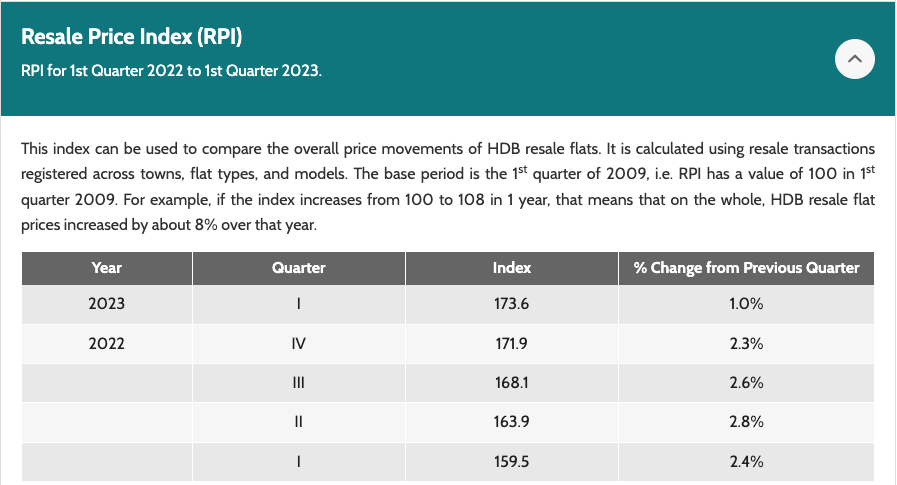
For the first quarter of 2023, the price growth was only 1.0% compared to the 4 quarters in 2022. Mainly because of the cooling measure introduced in September 2022, where MAS raises the Medium-term Interest Rate floor by 0.5%-point to 4% per annum(p.a) for bank loans and 3% Interest Rate floor for HDB loans.
To further dampen the demand and price hike, lower Loan-to-Value(LTV) limit were also implemented, LTV limit for HDB housing loans was lowered by 5%-points from 85% to 80%, which means there will be higher capital outlay, coupled with a Wait-Out Period for Private Residential Property Owners(PPOs) and ex-PPOs to buy non-subsidized HDB Resale Flats.
They will now be required to serve a wait-out period of 15 months after the disposal of their private properties before they are eligible to buy a non-subsidized resale flat. For more information, please refer to the link above.
Are the cooling measures effectively dampening the market demand for HDB?
Is 1% gain per Quarter enough for me to break even?
Is it something that I should worry?
Let us take a walk back to the past and look at the history of HDB Resale Price Index(RPI) when demand was well controlled before the pandemic(Covid 19):
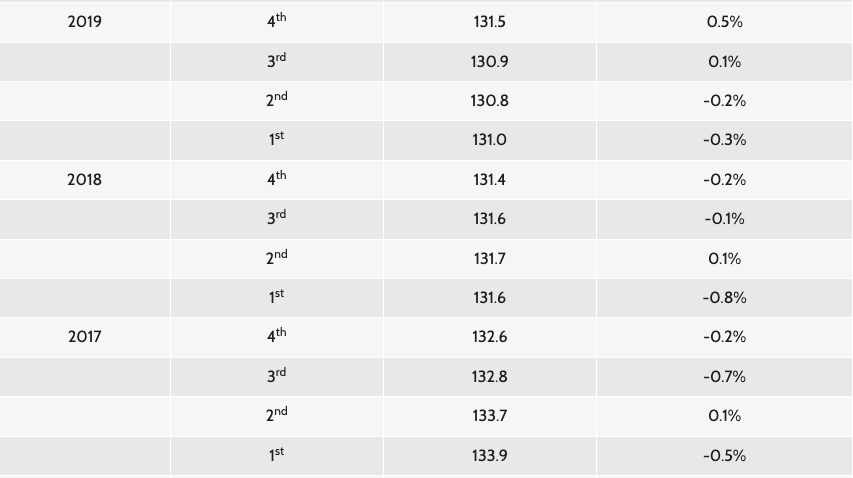
As we can see from the past statistic, the growth during the pandemic seems illogical, let us find out why it is acting this way.
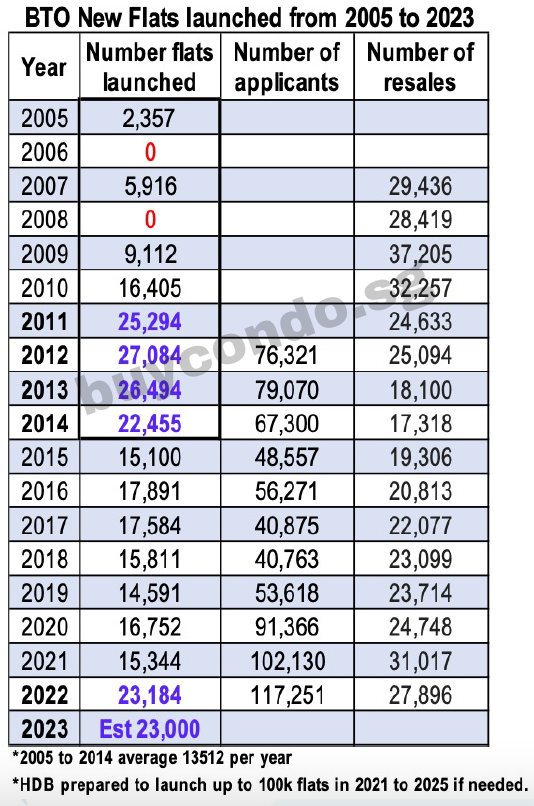
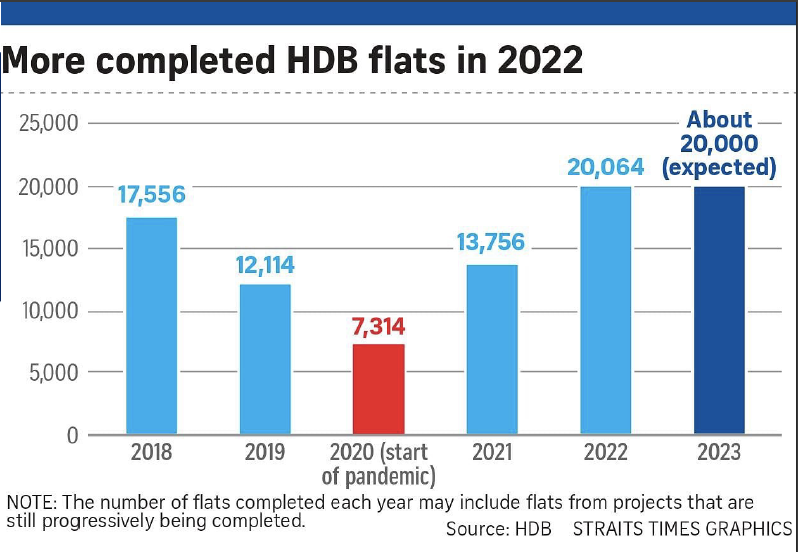
It all boils down to the Supply & Demand behavior of the market that drives the general prices of property in Singapore. The surge in the demand for HDB came in during the pandemic period coupled with the delay in the construction of the new BTO that was supposed to be completed on time.
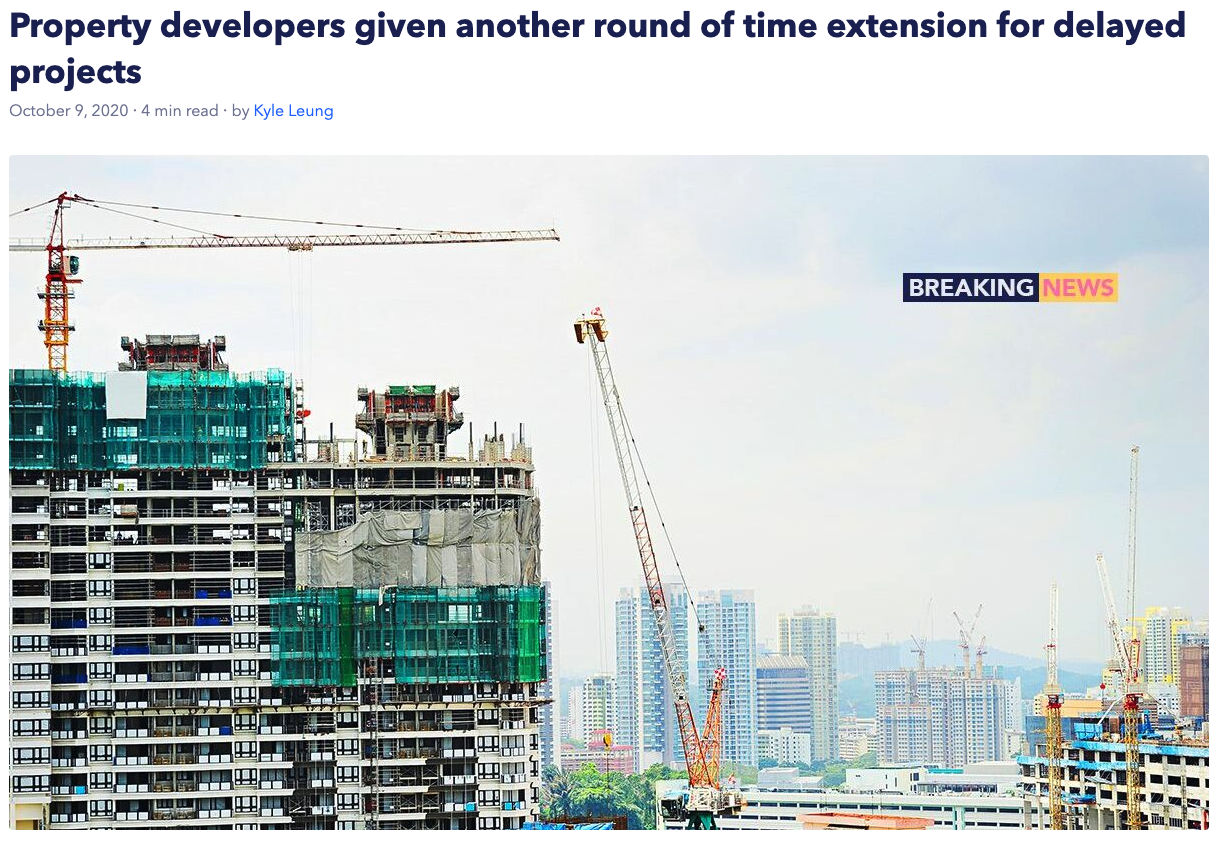
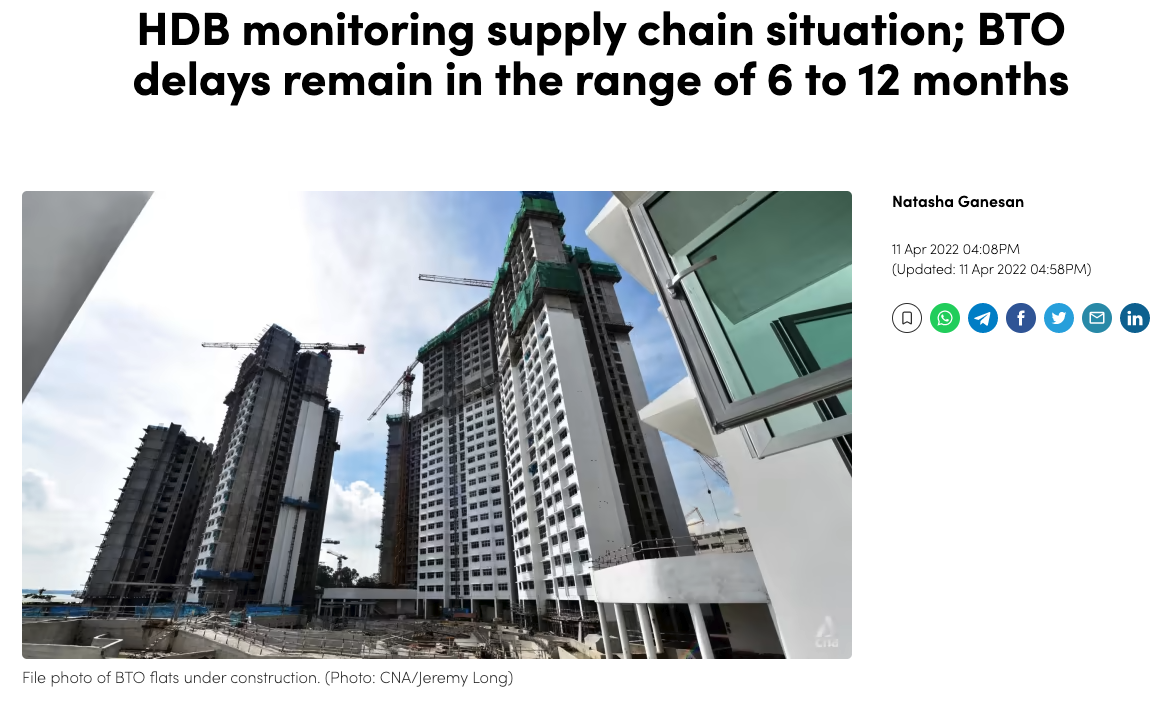
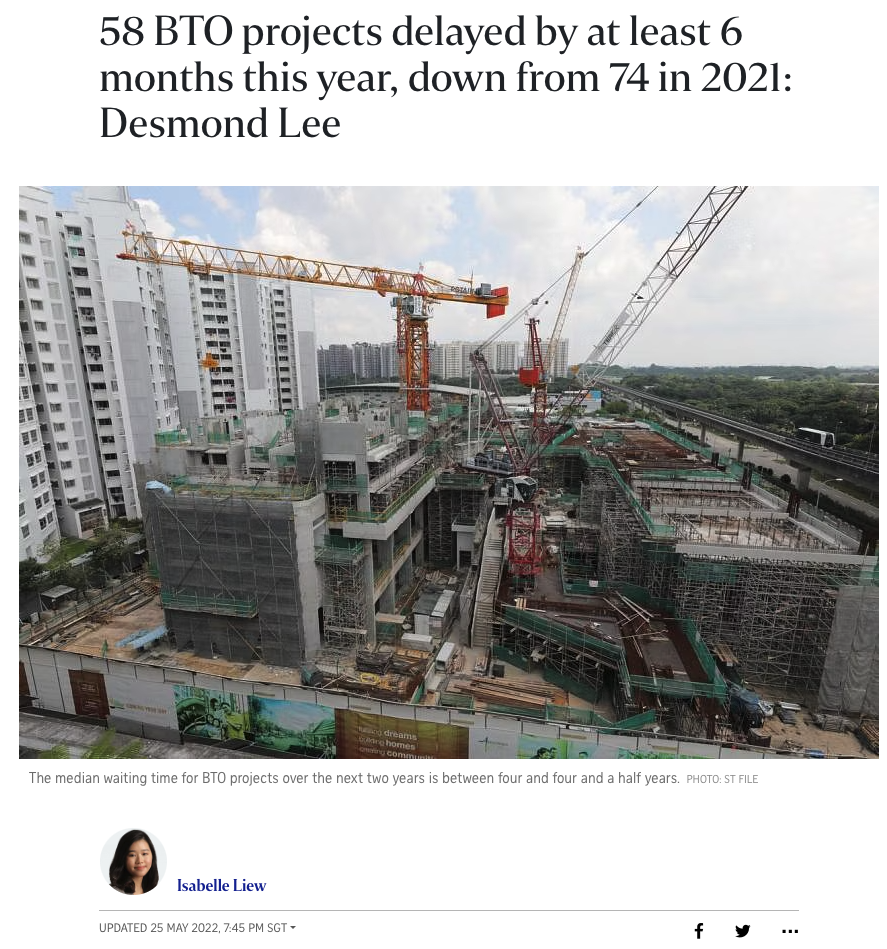
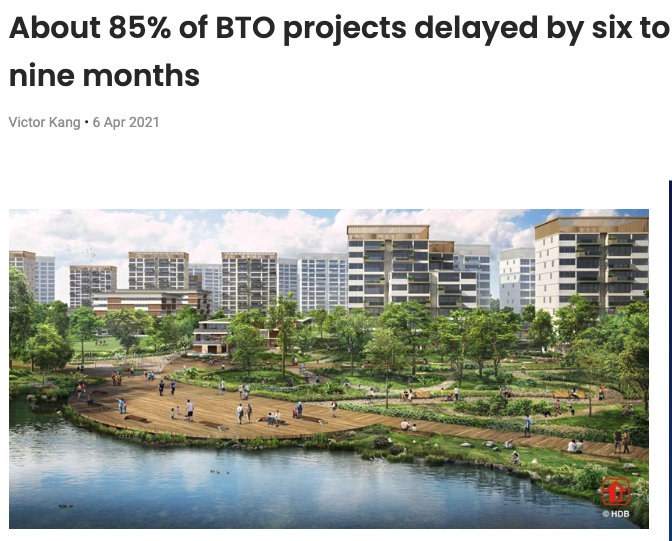
HDB to Ramp Up Flat Supply by 35% Over Next Two Years
HDB will ramp up the supply of new Build-To-Order (BTO) flats over the next two years to meet the strong housing demand from Singaporean households. We plan to launch up to 23,000 flats per year in 2022 and 2023 across mature and non-mature towns. Looking ahead, we are prepared to launch up to 100,000 flats in total from 2021 to 2025, if needed, subject to prevailing demand.
Will There Be An Impending Over Supply Issue In The Near Future?
Are There Still Opportunities for Capital Appreciation?
So now we know that HDB will be ramping up supplies of new BTO Flats coupled with the delayed BTO Flats that will be completed in due time flooding the HDB market supply, what will we see in the market in the near future?
Will we still see a price hike like in 2021 and 2022 or repeated behavior like in 2013 and 2014?
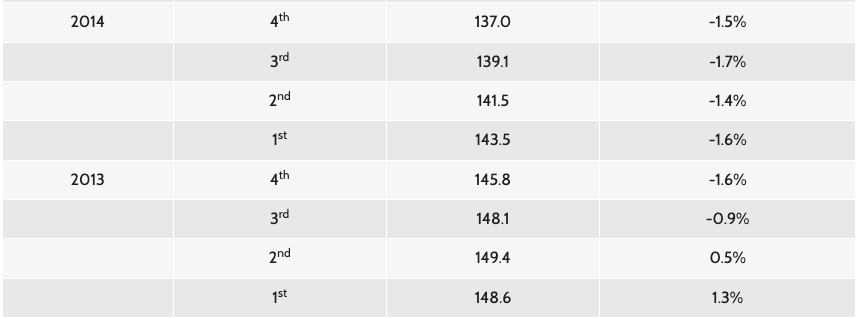
Many Home Owners often have plans to leave their inheritance to their children, including property for most people.
But will the property they left behind be an ASSET or a LIABILITY?
What is the best plan for your future then?
Would you prefer to be sitting on a property that is fully paid, valued at $600,000, or one that is valued at $1,500,000?
“A Person’s most useful asset is not the head full of knowledge, but a heart full of love, an ear ready to listen, and a hand willing to help.”
Let us know what is your take on the sharing, you may also connect with any of our writers here to learn more about how you can value add to your retirement portfolio!
To learn more about upgrading to Executive Condominium, Click here!
For more similar articles, check out our blog section!

The post Resale HDB Flat: Is it Worth Holding in Today’s Market 2023? appeared first on Wing Tai Holdings Singapore.
]]>The post ALTURA EC Launching: Why is everyone going crazy about EC in Singapore? appeared first on Wing Tai Holdings Singapore.
]]>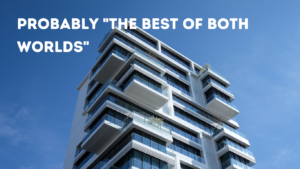
The Rising Craze of Executive Condominiums in Singapore: Affordable Luxury and Exclusive Living
Executive condominiums (ECs) are highly sought-after residential options in Singapore, standing out as a more upscale choice compared to other HDB flats such as BTO flats, Sale of Balance Flats (SBF) units, and Open Booking of Flats (OBF) units.
Referred to as “sandwich flats,” executive condominiums in Singapore represent a unique housing category combining public and private housing elements. They cater to middle-income Singaporeans who are ineligible for an HDB flat due to the income ceiling, yet consider private condominiums financially out of reach. What sets ECs apart is their attractive pricing in comparison to private condominiums while still offering comparable amenities and designs.
“Wait, Sooooooo What’s so good about Executive Condominium then?”
“Isn’t Private Condo still superior over Executive Condo?”
LET’S TAKE A LOOK AT THE COMPARISON BELOW
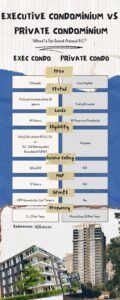
Advantages of Buying Executive Condos in Singapore
1. Executive Condos Are Priced lower Compared to Private Condos
Executive Condominiums buyers get to enjoy the perks of living in private property as subsidized by the government, provided that they fulfill the eligibility requirements. In addition, first-time Executive Condo buyers may be entitled to CPF housing grants. Even though the lower price tag, EC owners also get to enjoy the full condo facilities and fully equipped kitchens and bathrooms that are comparable to condominiums.
“Considering buying at subsidized rates, and can be sold freely in open market after 10 year!”
2. Privatised After 10-Year Mark.
Given their more affordable cost and the 10-year privatization rule, numerous buyers of executive condominiums (ECs) hold the belief that these properties may experience higher capital appreciation compared to private condominiums after the 10-year mark. Don’t forget that you will be buying from HDB at a subsidized price. *Grin*
3. CPF Housing Grants for First-Timer Applicants (EC)
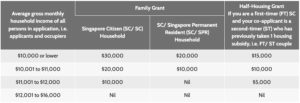
Households comprising SC and SPR individuals are eligible for an additional $10,000. This amount can be obtained when the SPR member converts to an SC and applies for the Citizen Top-Up within 6 months of meeting the eligibility criteria.
4. Favorable Housing Option for Middle-Income Singaporeans Designed for Own Stay
Executive condominiums (ECs) were primarily designed to serve as residences rather than investment assets. As part of this intention, specific regulations exist for EC owners. Firstly, the buyer must reside in the EC for a minimum of five years before it can be sold. Furthermore, even after the five years, there are restrictions on the sale, allowing only Singapore Citizens or Singapore Permanent Residents to purchase the property. However, once reaches the 10-year mark, the EC is effectively transformed into a private condominium and can be freely sold to anyone on the open market!
These measures aim to provide context to the nature of ECs, which are subsidized by the state and intended to facilitate homeownership for Singaporeans rather than serving as investment opportunities for real estate investors. While the Minimum Occupation Period (MOP) may be seen as a constraint, it does not pose any obstacles for those who view an EC primarily as a place to call home and have genuine intentions of residing in it.
5. No ABSD payable
Good news! Due to the recent implementation of hefty ABSD increment, many HDB upgrades face issues with forking out the ABSD upfront though it can be remission after selling the previous home within six months of getting the new one. But if you purchase an Executive Condominium (EC), you don’t need to pay the ABSD first, you do still need to dispose of your flat within six months but at least there is no need for extra cash or CPF savings upfront. Yay!
disadvantages of buying EXECUTIVE CONDOS IN SINGAPORE
1. Limited to Bank Loans for Executive Condo Purchase
In contrast to an HDB loan, when obtaining a bank loan, the Loan-to-Value (LTV) limit is set at 75% of the property’s valuation or price, whichever is lower. This implies that you will need to contribute a minimum of 25% of your funds for the down payment of your executive condominium (EC). Out of this amount, 5% must be paid in cash, while the remaining 20% can be financed through a combination of CPF funds and cash.
Furthermore, you will also need to consider the Mortgage Servicing Ratio (MSR) and Total Debt Servicing Ratio (TDSR) rules. Under the MSR rule, you are only allowed to allocate a maximum of 30% of your monthly income toward servicing your home loan. Regarding the TDSR rule, the total amount dedicated to debt repayments, encompassing obligations such as car loans, credit cards, and student loans, cannot exceed 55% of your monthly income.
2. HDB Rules Apply
As previously mentioned, executive condominiums (ECs) are classified as HDB properties in the initial 10 years. During this duration, it is mandatory to adhere to HDB regulations, including the Minimum Occupation Period (MOP) requirement. The MOP entails residing in your EC for five years before you can consider selling or renting it out, limited to Singapore Citizens (SCs) and Permanent Residents (PRs) only. It’s important to note that the MOP period commences once the development has obtained its Temporary Occupation Permit (TOP).
3. New EC Launches Are Limited
Due to the high demand and scarcity of EC launches in Singapore, whenever there is a new EC launch, it tends to spark a frenzied rush among potential buyers.
Upcoming EC launch for 2023
ALTURA EC
1st EC launch in Bukit Batok after more than 20 Years, 1KM from the future ACS Primary, Princess Elizabeth, Dulwich College, and more!
Number of Units: 360
Size: 134,004 Sqft
Location: D23 – Hillview, Dairy Farm, Bukit Panjang, Choa Chu Kang
Address: Bukit Batok West Ave 8
Developer: TQS (2) Development PTE LTD
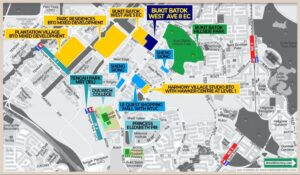
Visit ALTURA EC Site for more information. Learn more.

For more EC eligibility & property inquiries, please feel free to connect with us to learn more!
Looking for more similar articles? Check out BuyCondo’s Blog section!
The post ALTURA EC Launching: Why is everyone going crazy about EC in Singapore? appeared first on Wing Tai Holdings Singapore.
]]>The post How to apply HDB HFE Steps (9 May 2023) appeared first on Wing Tai Holdings Singapore.
]]>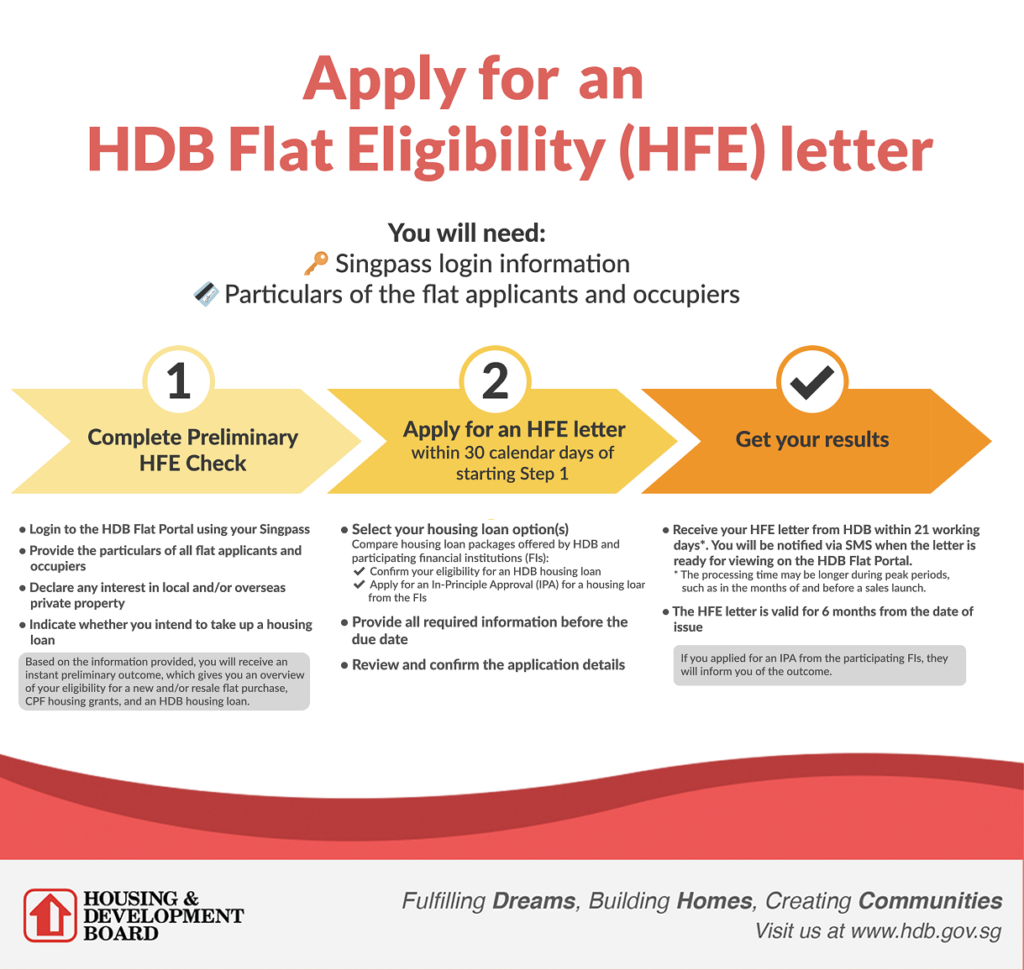
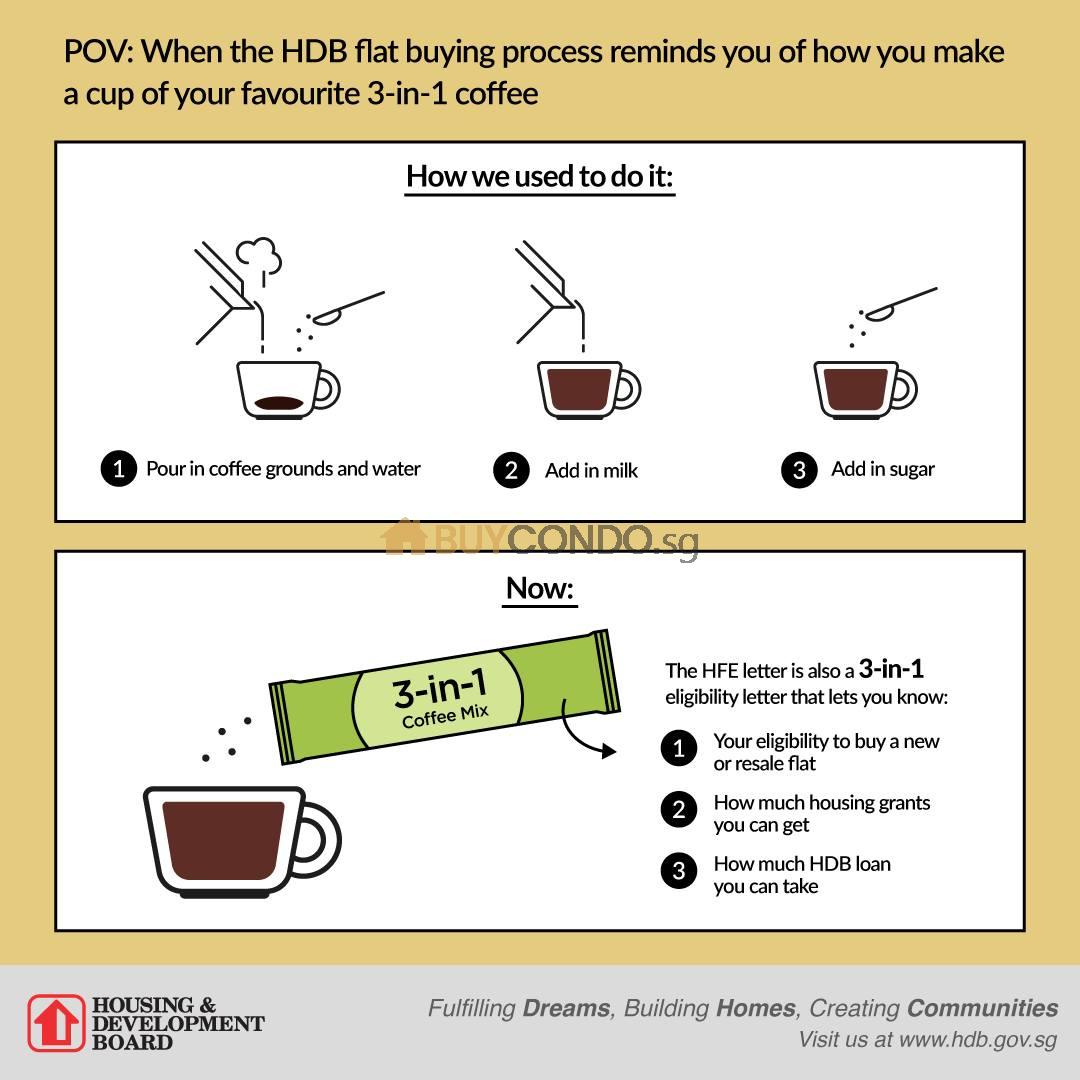
Updates : 23/11/2023 Please note changes on the HFE applicant occupiers is not allowed.
Thinking of buying an HDB flat soon? You will need an HDB Flat Eligibility (HFE) Letter before you set off on your home-buying journey. HFE letter streamlines the flat buying process. With the HFE letter, you will know upfront your eligibility to:
- Buy a new and/ or resale flat
- Receive CPF housing grants and the amount
- Take up an HDB housing loan, and the amount
 If you are interested in taking up a loan from a financial institution (FI), you can also concurrently apply for an In-Principle Approval from participating FIs when applying for an HFE letter. The letter will also give you an indicative loan assessment.
If you are interested in taking up a loan from a financial institution (FI), you can also concurrently apply for an In-Principle Approval from participating FIs when applying for an HFE letter. The letter will also give you an indicative loan assessment.
When will I need an HFE letter?
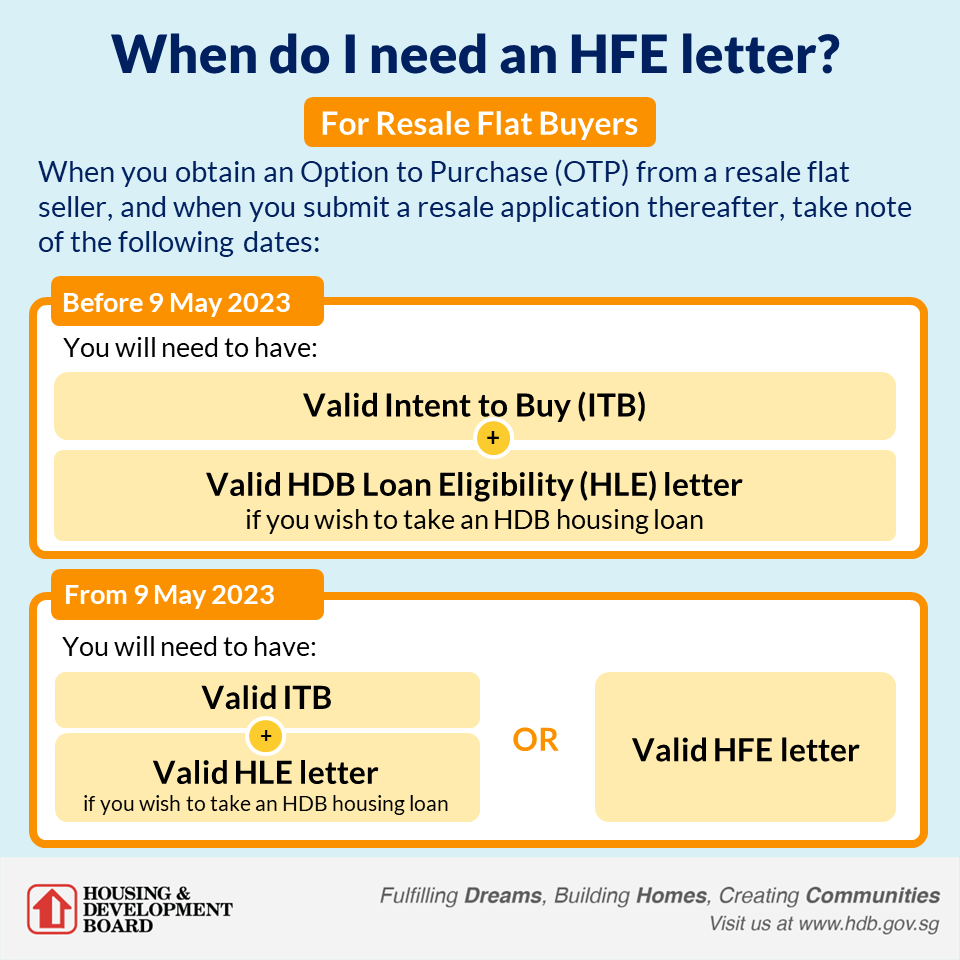
You will need a valid HFE letter when you:
- Apply for a flat from HDB during a sales launch or open booking of flats
- Obtain an Option to Purchase from a flat seller for a resale flat and when you submit a resale application to HDB.
 The HFE letter helps you make an informed decision and reduces the guesswork as you plan the budget for your flat. We encourage you to plan ahead and apply for the HFE letter early – after all, the HFE letter is valid for 6 months.
The HFE letter helps you make an informed decision and reduces the guesswork as you plan the budget for your flat. We encourage you to plan ahead and apply for the HFE letter early – after all, the HFE letter is valid for 6 months.
What happened to the HLE letter?
The HFE letter replaces the old HDB Loan Eligibility (HLE) letter. Whereas buyers’ eligibility to buy an HDB flat, receive grants, and take up a housing loan used to be assessed at various stages in the flat-buying journey, the process is now streamlined into a single application for greater convenience.
If you are currently in the midst of buying a flat, learn more about whether and when you would need an HFE letter.
How do I apply for an HFE letter?
There are just 2 steps to apply for an HFE letter:
- Step 1: Preliminary HFE Check. Based on the information you provide, you will receive a quick overview of your eligibility to buy an HDB flat, receive CPF housing grants, and take up an HDB housing loan. This is a preliminary assessment to guide your financial planning. If you have decided to buy a flat, proceed to the next step to apply for an HFE letter.
- Step 2: Apply for an HFE Letter. Note that you will need to apply for an HFE letter within 30 calendar days of starting the preliminary HFE check. If not, you will need to start the preliminary HFE check afresh. You can use your HFE letter to work out your flat budget before beginning your home search.
 If you can, apply for the HFE letter within the same calendar month that you started the preliminary HFE check. Otherwise, you will need to update the employment details for all persons listed in your application.
If you can, apply for the HFE letter within the same calendar month that you started the preliminary HFE check. Otherwise, you will need to update the employment details for all persons listed in your application.
You will be guided along both Step 1 and Step 2 by the HDB Flat Portal. Remember to have the required information (e.g. Singpass login info and details of all applicants and/ or occupiers) ready for a smoother process.
Read on to understand what you need to note for each step in the HFE process.
| Step 1: Preliminary HFE check Provide your household particulars and income details Submit declarations State housing loan intent Review details and receive preliminary HFE assessmentStep 2: Apply for an HFE letter Choose loan options Provide additional details Review details Upload documents Submit application |
Step 1: Preliminary HFE Check
Provide your household particulars and income details
Begin by logging in on the HDB Flat Portal with your Singpass. You can save time by using Myinfo to retrieve your particulars, and update them if there are any changes. You will also need to enter the particulars of the co-applicants and occupiers in the application.
 If you need more time, you can save a draft copy at any time during your application. The draft will be available for 30 calendar days from the date you start the preliminary HFE check.
If you need more time, you can save a draft copy at any time during your application. The draft will be available for 30 calendar days from the date you start the preliminary HFE check.
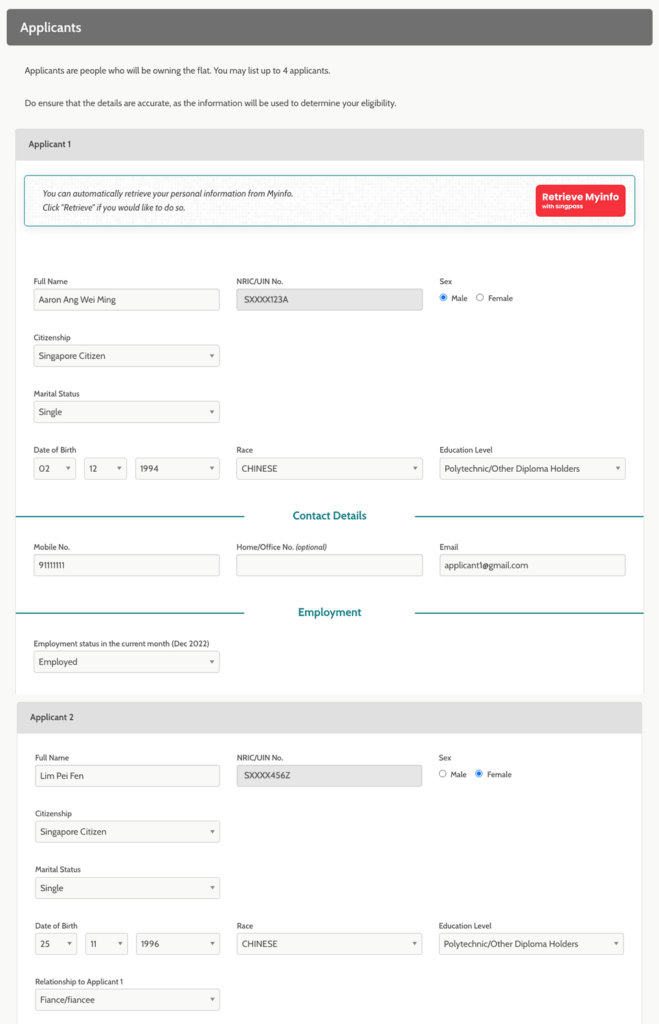
Next, provide the employment details, monthly income and bonuses received for all persons listed in the application.
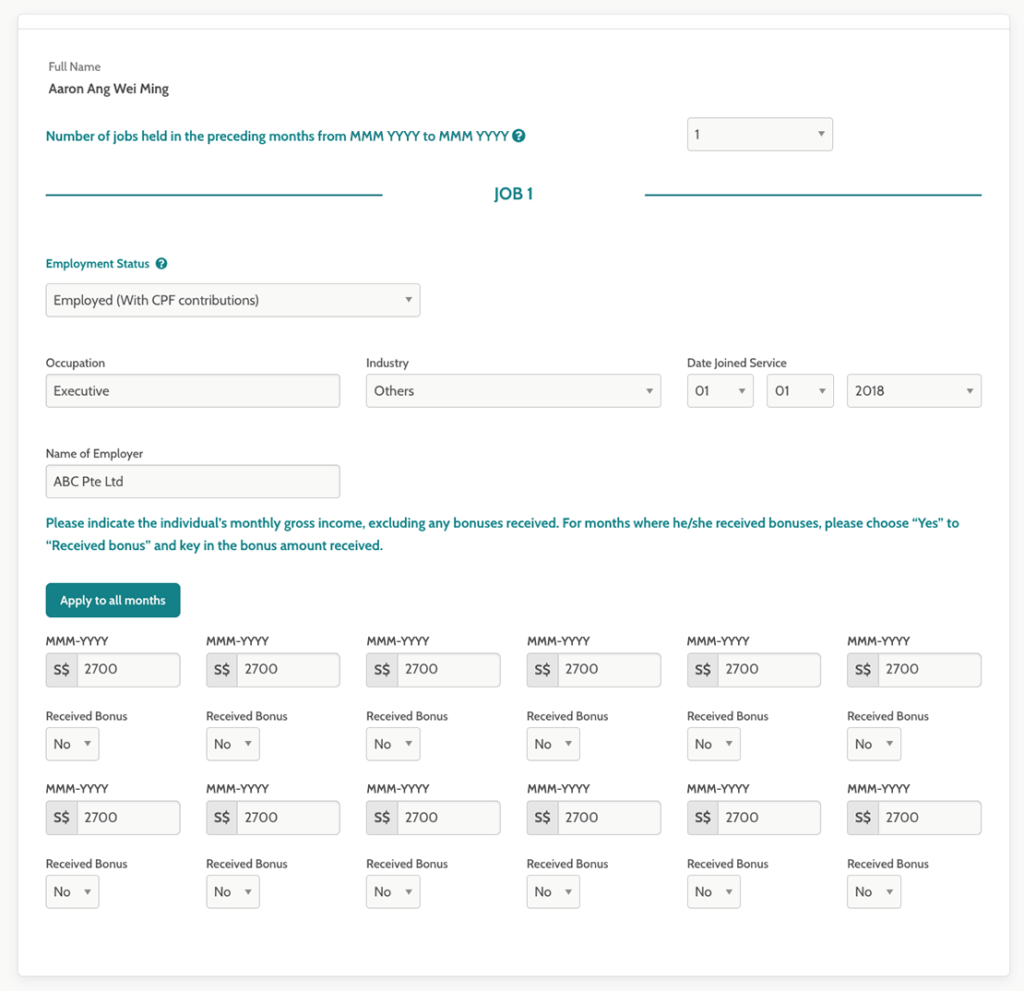
Submit declarations
You will then need to declare any interest in private properties for all persons listed in the application.
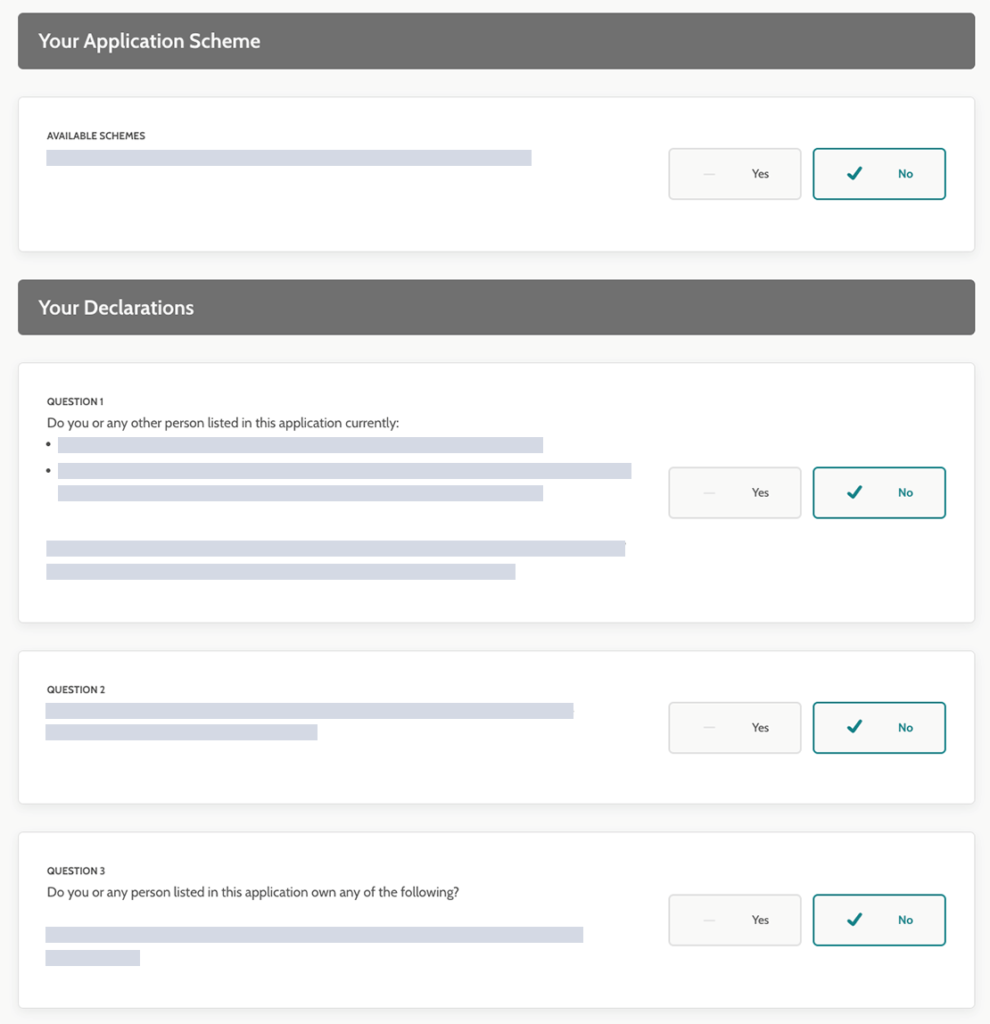
State housing loan intent(HDB or Bank Loan)
Indicate whether you intend to take up a housing loan for the flat purchase. If you do, you will also need to declare any monthly financial commitments, such as instalment plans, bills, insurance premiums, and other loan payments.
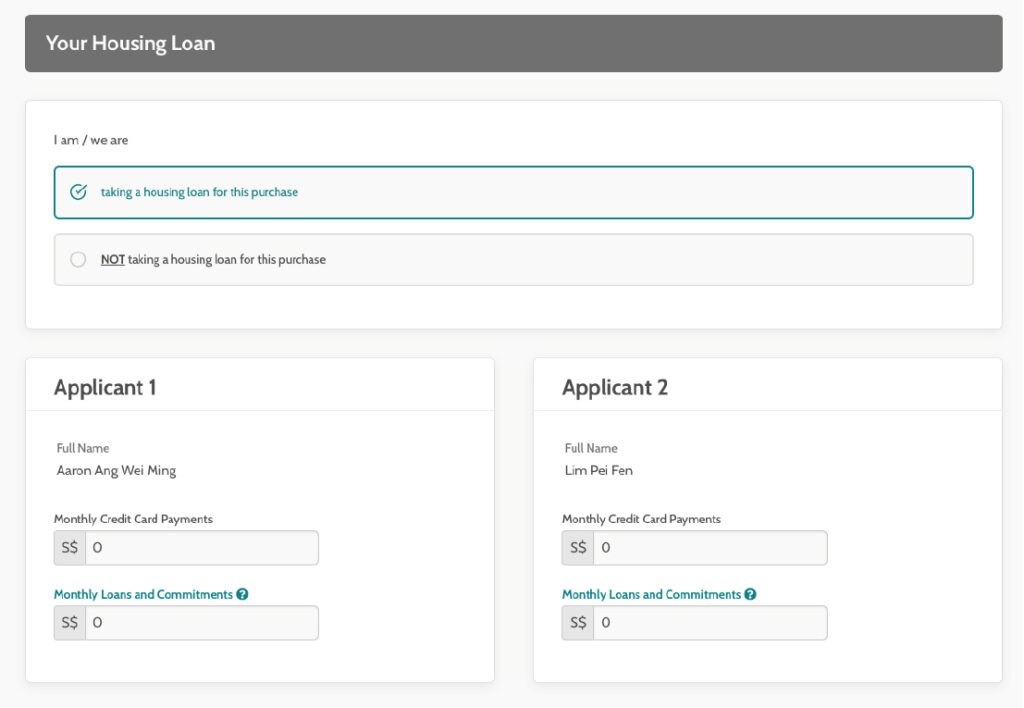
Review details and receive preliminary HFE assessment
Finally, review the information you have provided. Pro-tip: If you want to make any changes after this, you will need to start the preliminary HFE check afresh, so ensure the information is accurate.
You will then receive a preliminary assessment of your eligibility to buy a new and resale flat, receive CPF housing grants, and take up an HDB housing loan. You can log back into the HDB Flat Portal to view your preliminary HFE assessment anytime within the next 30 days.
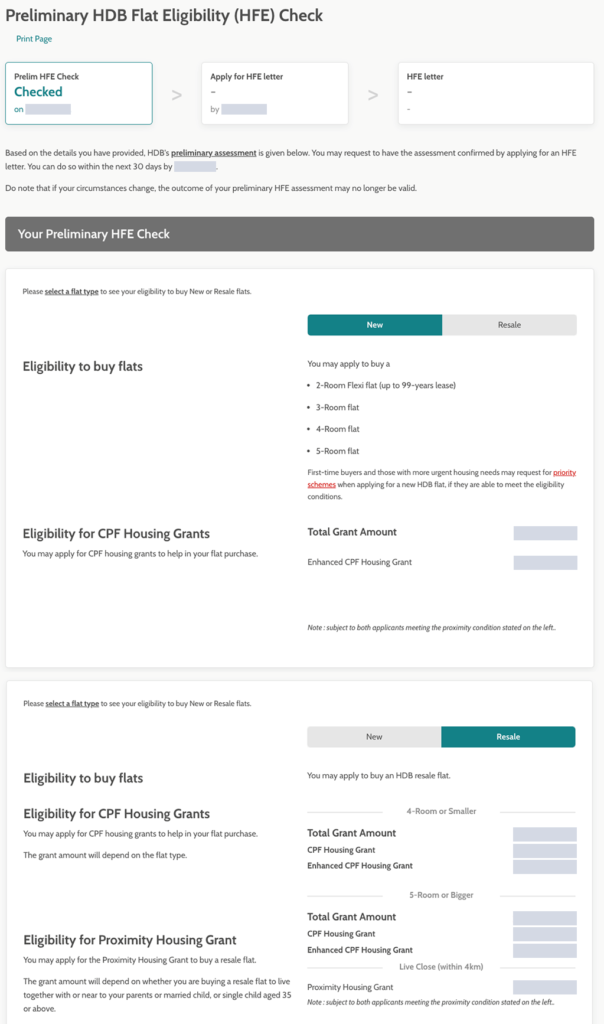
 If you are eligible for an HDB housing loan, you can also compare different loan scenarios, including the monthly instalments and interest payable, based on different loan amounts and repayment periods.
If you are eligible for an HDB housing loan, you can also compare different loan scenarios, including the monthly instalments and interest payable, based on different loan amounts and repayment periods.
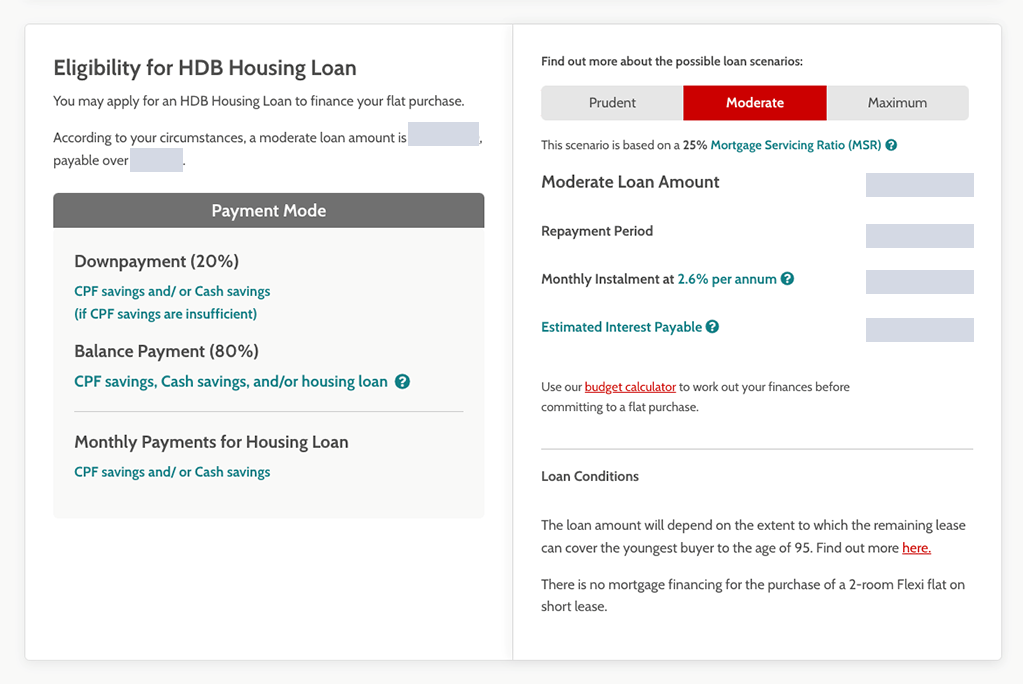
If there are any changes to the information provided (such as your employment, income, or ownership of private properties), you must start your preliminary HFE check afresh.
If you have decided to buy an HDB flat, you will need to proceed to Step 2, which is to apply for an HFE letter. This must be done within 30 calendar days from starting your preliminary HFE check.
Step 2: Apply for an HFE Letter : How to apply HDB HFE Steps (9 May 2023)
Choose loan options
Start your application by logging in to the HDB Flat Portal using your Singpass.
You will first need to confirm whether you intend to take up a housing loan to buy a flat. The option you previously indicated in your preliminary HFE check will be displayed. If you change your mind, you may select a different option.

If you wish to take up a housing loan to finance your flat purchase, you can:
- View your eligibility for an HDB housing loan and the different loan scenarios
- Find out more about the considerations in taking up a housing loan from financial institutions (FIs)
 As with the preliminary HFE check, you can save a draft if you need more time to complete the application. Your draft will be available for 30 calendar days from the date you start the preliminary HFE check.
As with the preliminary HFE check, you can save a draft if you need more time to complete the application. Your draft will be available for 30 calendar days from the date you start the preliminary HFE check.
Did you know that you will also be able to compare housing loan packages from HDB and the participating FIs, and request an In-Principle Approval (IPA) for a housing loan from the FIs? The IPA will provide you with the FI’s indicative loan assessment.
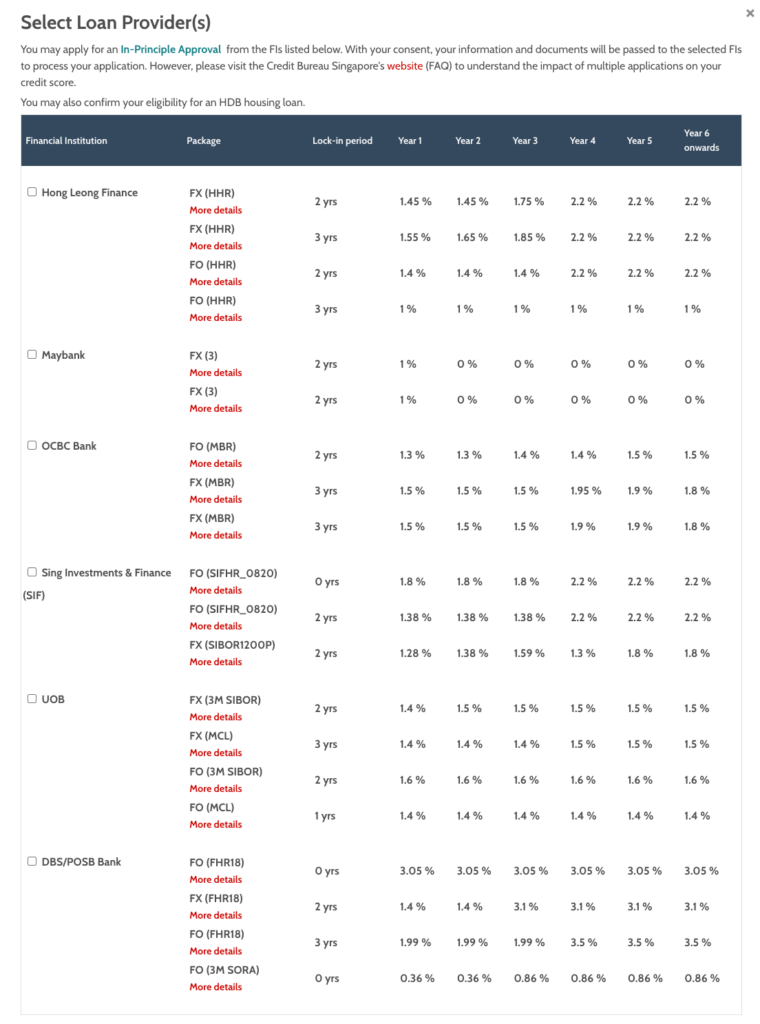
Provide additional details
Next, provide your particulars. To speed things up, you can use Myinfo to retrieve your:
- Particulars and contact details
- CPF contribution history over the past 15 months
- Latest Notice of Assessment from IRAS
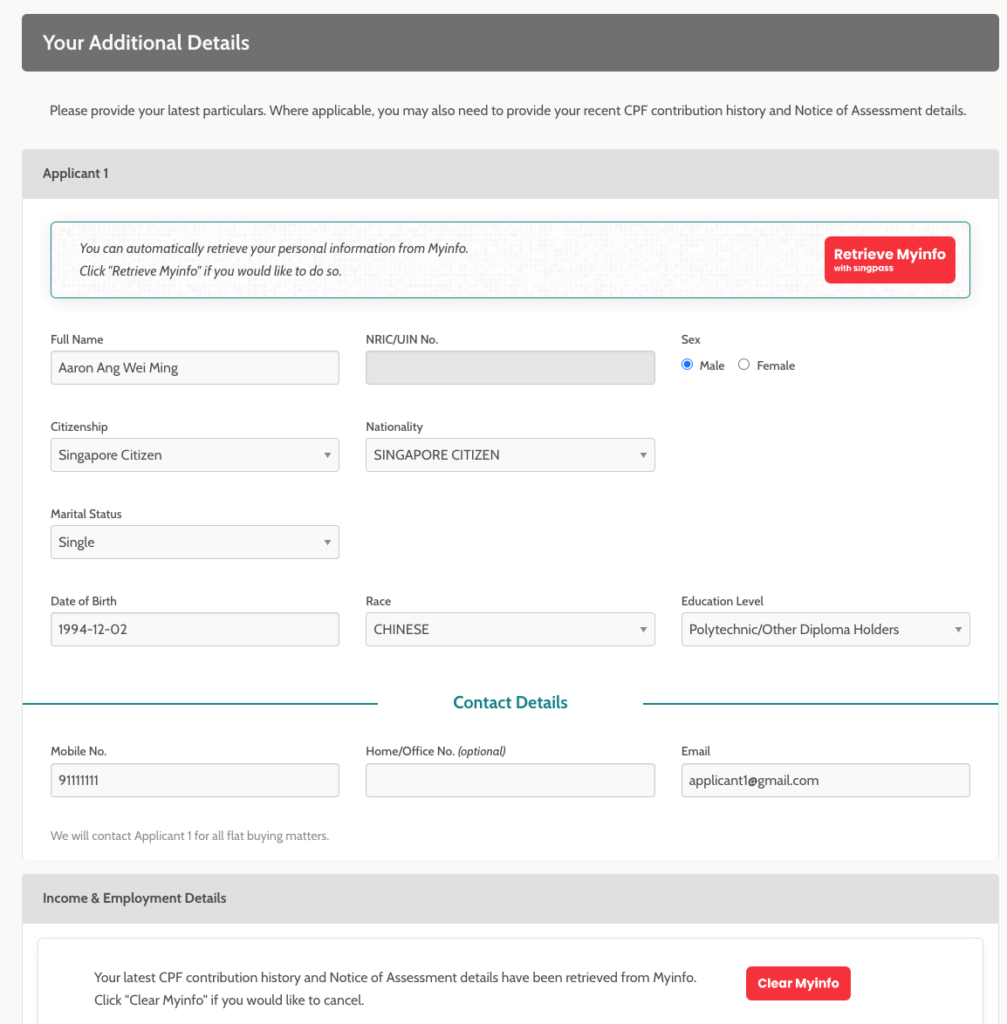
Review details
Before submitting your application, review your particulars, income details, and information regarding your household’s ownership of private property declared during your preliminary HFE check. If there are any changes, you must start your preliminary HFE check afresh.
Next, review your chosen financing option and loan provider(s), if you are taking a housing loan. If you need to make any changes, only Applicant 1 can do so by returning to “Choose loan options”.
Finally, please go through the terms and conditions of the application.
Once you are ready, digitally endorse all the information provided. To submit the application, all applicants and occupiers, if any, must log in using Singpass to verify their details and declarations.
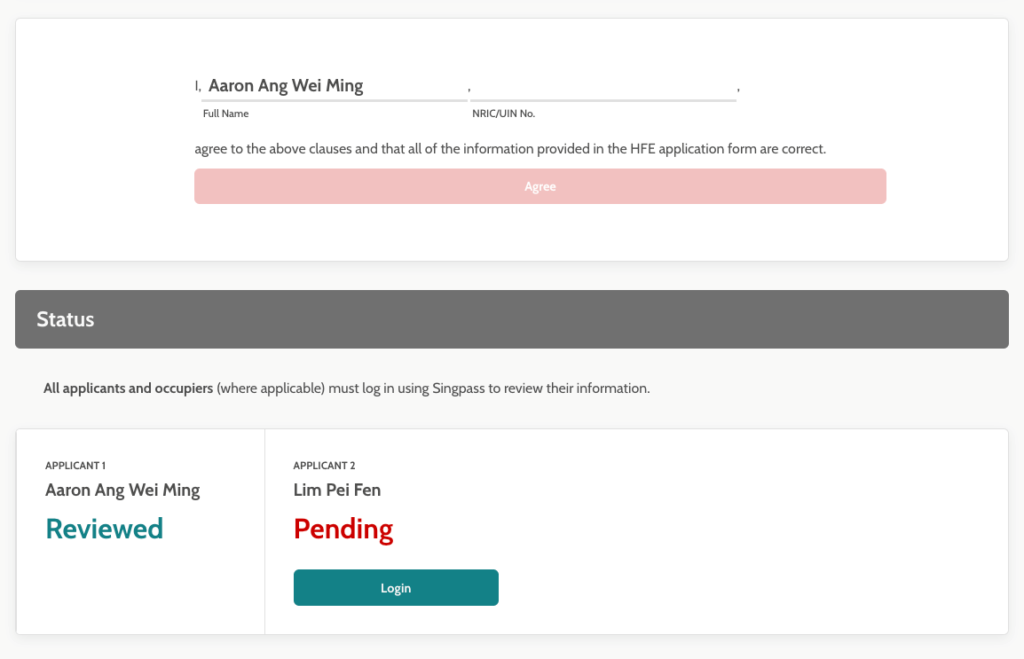
Upload documents
Once all applicants and occupiers have endorsed the application, you will be advised on any supporting documents required.
Submit application
After you have uploaded the required documents and submitted your application, you will see an acknowledgment page. HDB will contact you if any additional information is required for your application. To check the status of your application, you can log in to the HDB Flat Portal at any time.
Typically, HDB will send you the HFE letter within 21 working days of receiving your complete application though the processing time may be longer during peak periods, such as in the months of and before a sales launch.
If you applied for an IPA from the participating FIs, they will liaise with you directly on the outcome of your IPA application. You will be able to confirm the FI’s loan offer through the HDB Flat Portal after securing a flat.
Receive HFE letter
When your HFE letter is ready, you will be notified via SMS to log in to the HDB Flat Portal.
The HFE letter is valid for 6 months.
Registration of HDB Intent to Sell have moved to My Flat Dashboard. Following is the link. https://services2.hdb.gov.sg/web/bp28/TimeLine/my-flat-dashboard
RE: With effect from 9th May 2023, HDB will replace
Home Loan Eligibility(HLE) with HDB Flat
Eligibility(HFE).
HFE streamlines eligibility checks for:
1. Flat Purchase (New or Resale)
2. CPF Housing Grants
3. HDB Housing Loans (Former HLE)
The HFE letter, which will replace the current HDB Loan Eligibility (HLE) letter, will inform flat buyers upfront of their eligibility for a new or resale flat purchase, CPF housing grants, and HDB housing
loan, including the respective grant and loan amounts.
Click here to apply, HDB InfoWEB or through scanning the QR code below.
[1] Second-timers will also be advised on the resale levy/premium payable for the purchase of a second subsidised flat from HDB, if they are eligible for one.
[2] The information provided by the applicants in step 1 will be populated for their confirmation. If there are any changes to the information provided, the applicants may have to start step 1 afresh.
[3] The processing time of an HFE letter application is up to 21 working days. It is expected to be longer during peak periods, such as in the months of and before a sales launch. Flat buyers are advised to apply for an HFE letter early.
[4] The six participating FIs are: DBS Bank Limited, Hong Leong Finance Limited, Maybank Singapore Limited, Overseas-Chinese Banking Corporation Limited, Sing Investments & Finance Limited, and United Overseas Bank Limited.
[5] The FIs will liaise with the flat buyers directly on the outcome of their IPA and LO applications. (You may also contact your Real Estate Salesperson to compare and choose the competitive interest rates)
How your HDB HFE Letter will look.
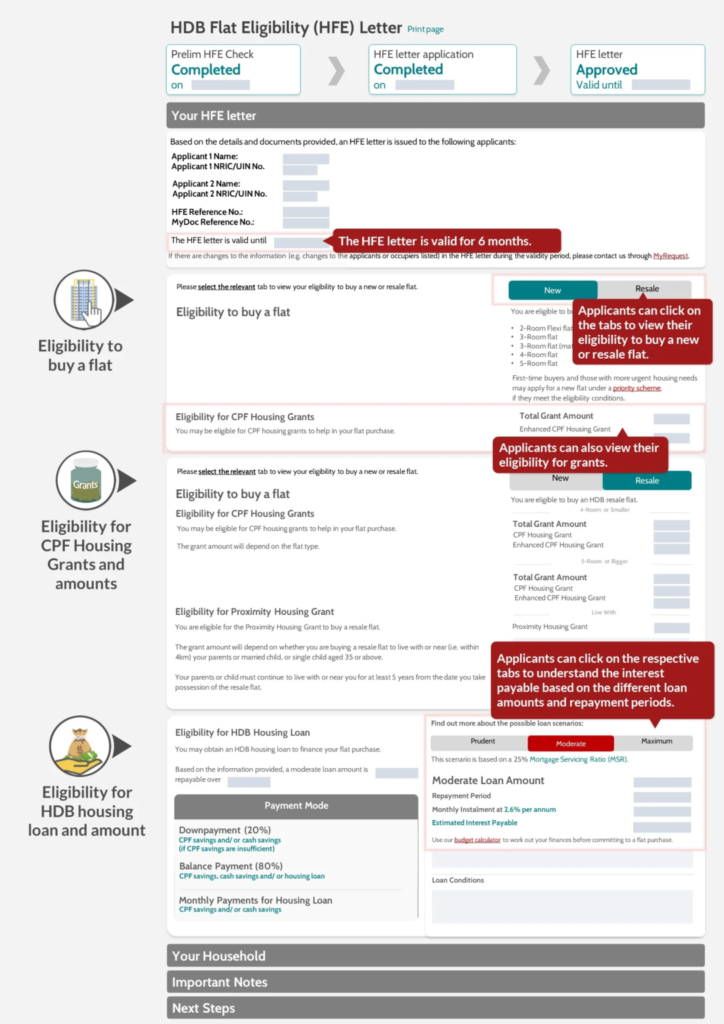
HDB Grants that remain Unchanged from 9th May 2023.
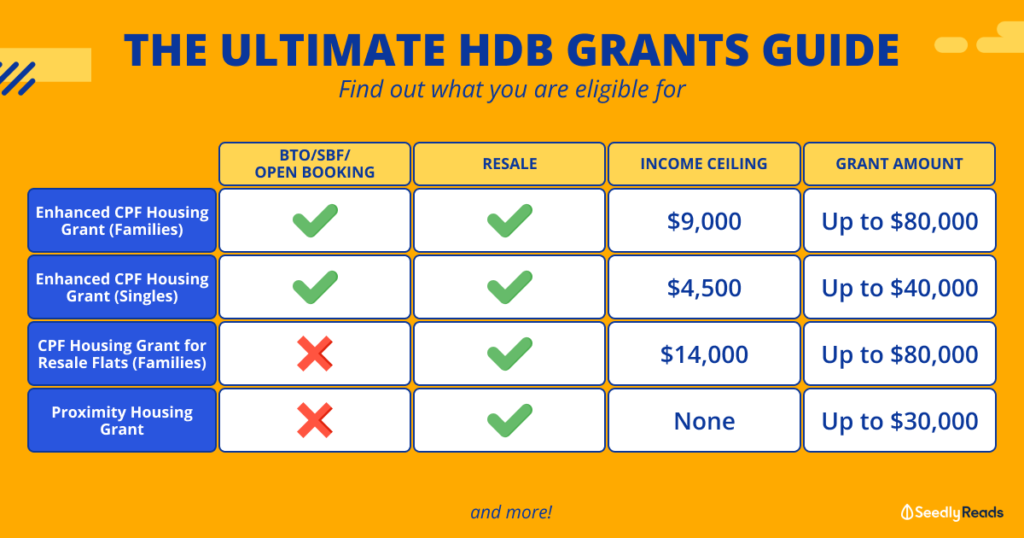
MOP HDB Sold by Us Recently:
Source: HDB
Source : https://www.mynicehome.gov.sg/hdb-how-to/buy-your-flat/a-guide-to-applying-for-an-hdb-flat-eligibility-hfe-letter/
The post How to apply HDB HFE Steps (9 May 2023) appeared first on Wing Tai Holdings Singapore.
]]>